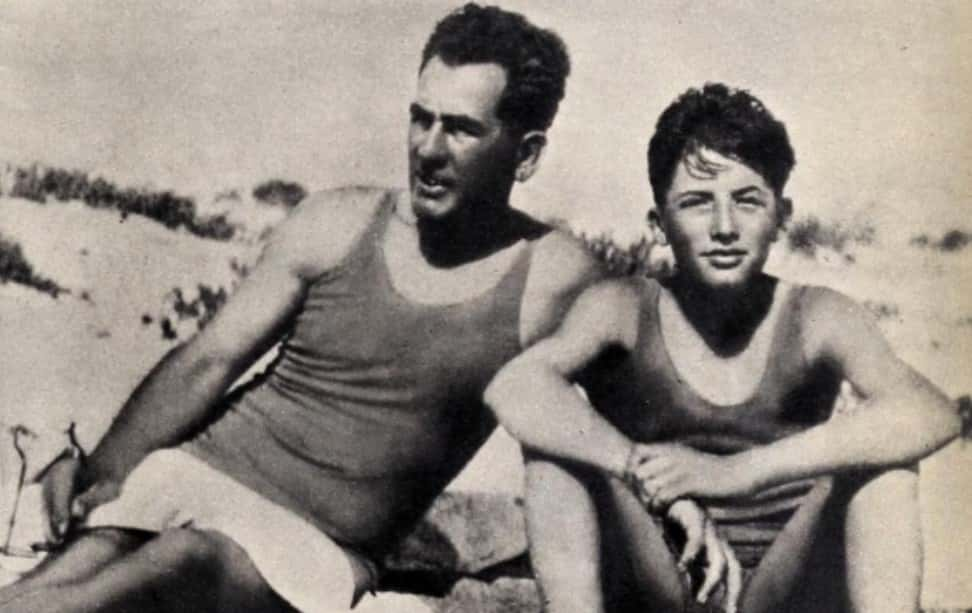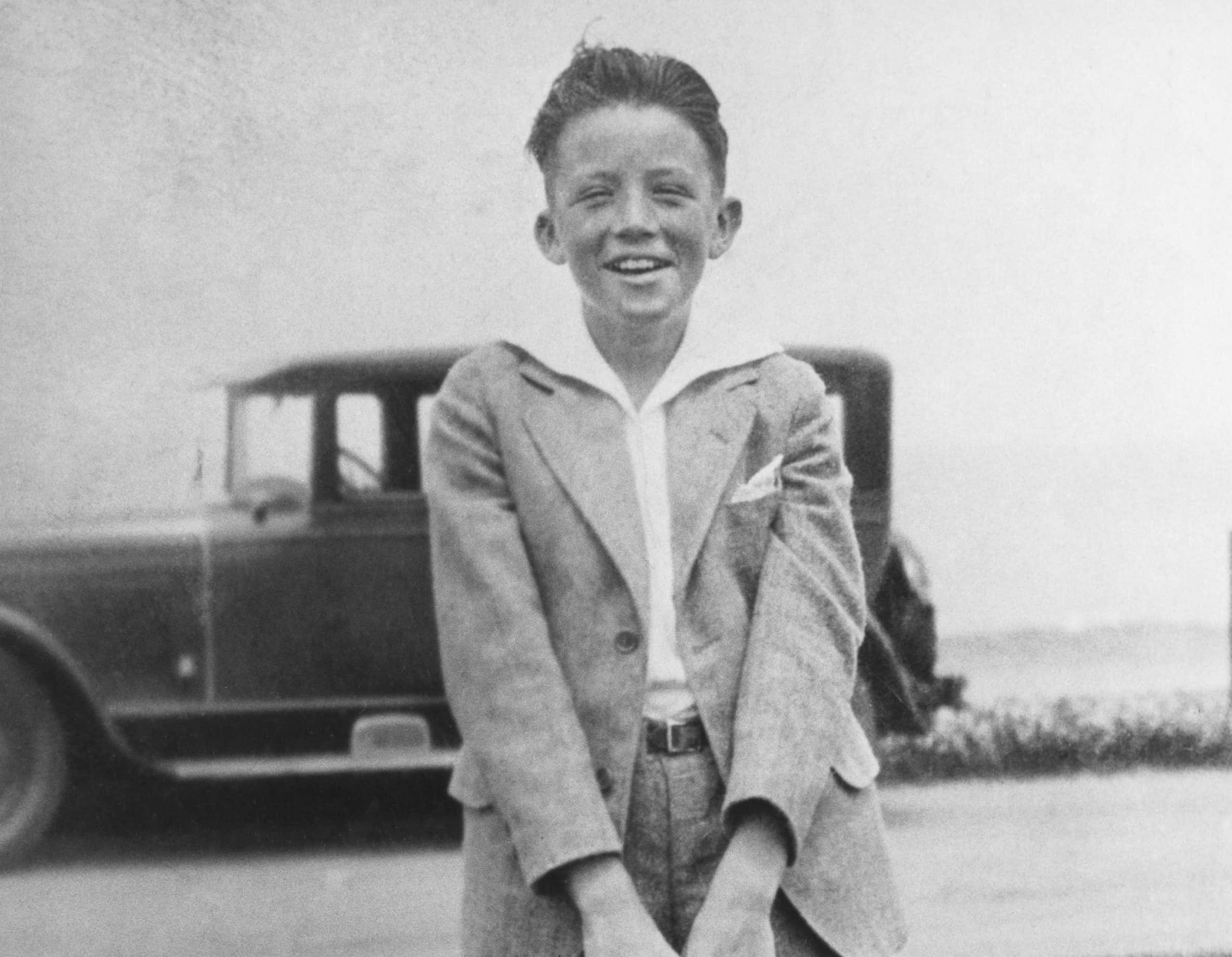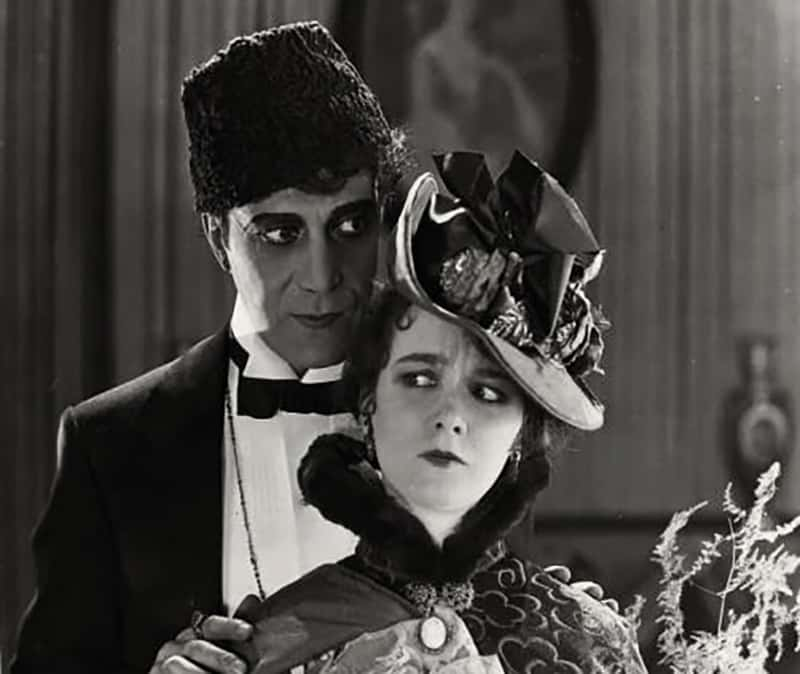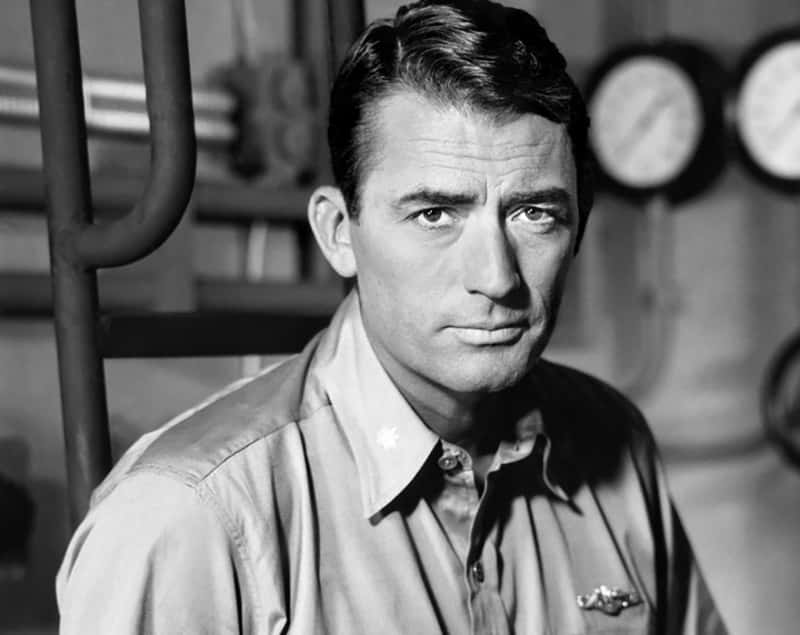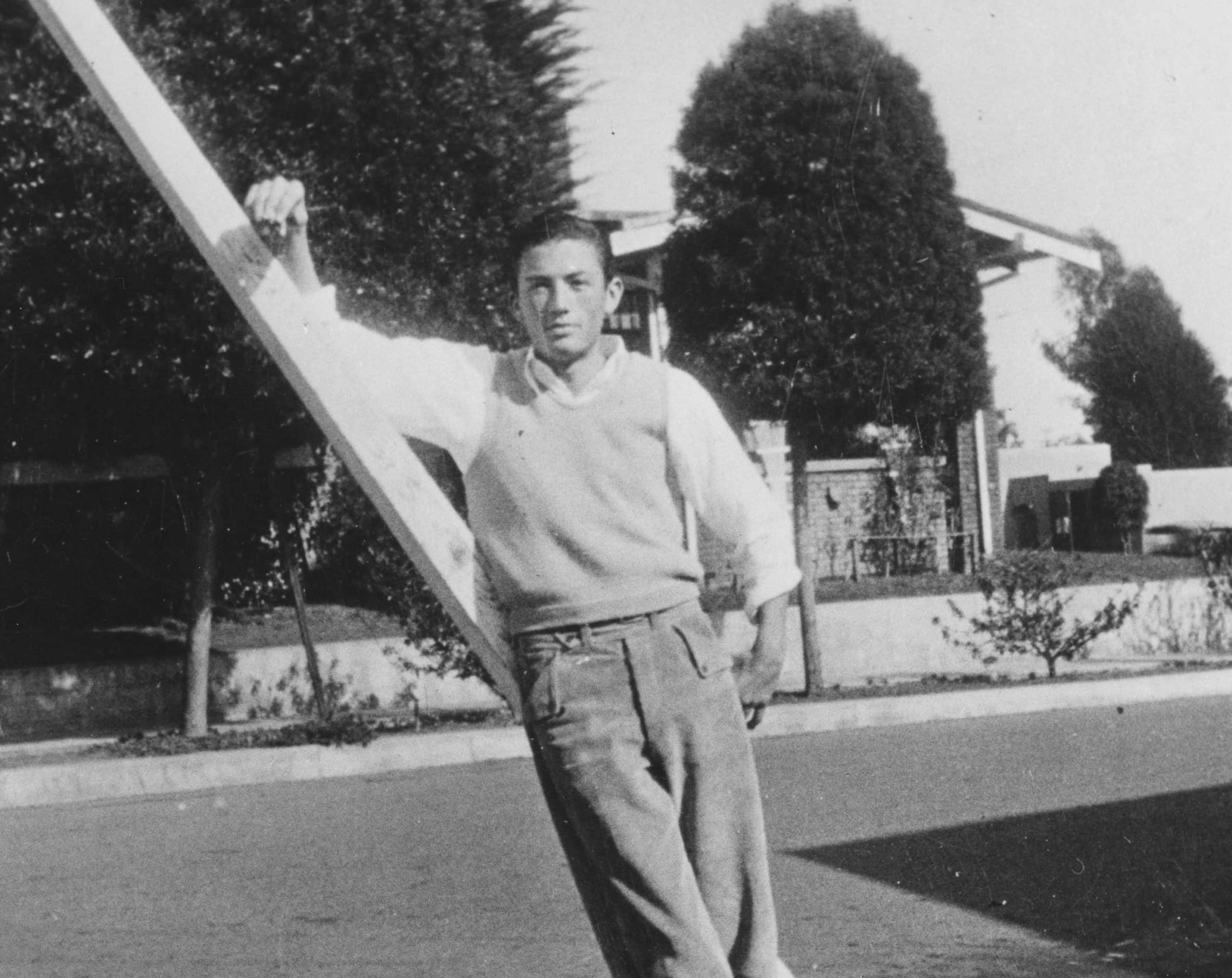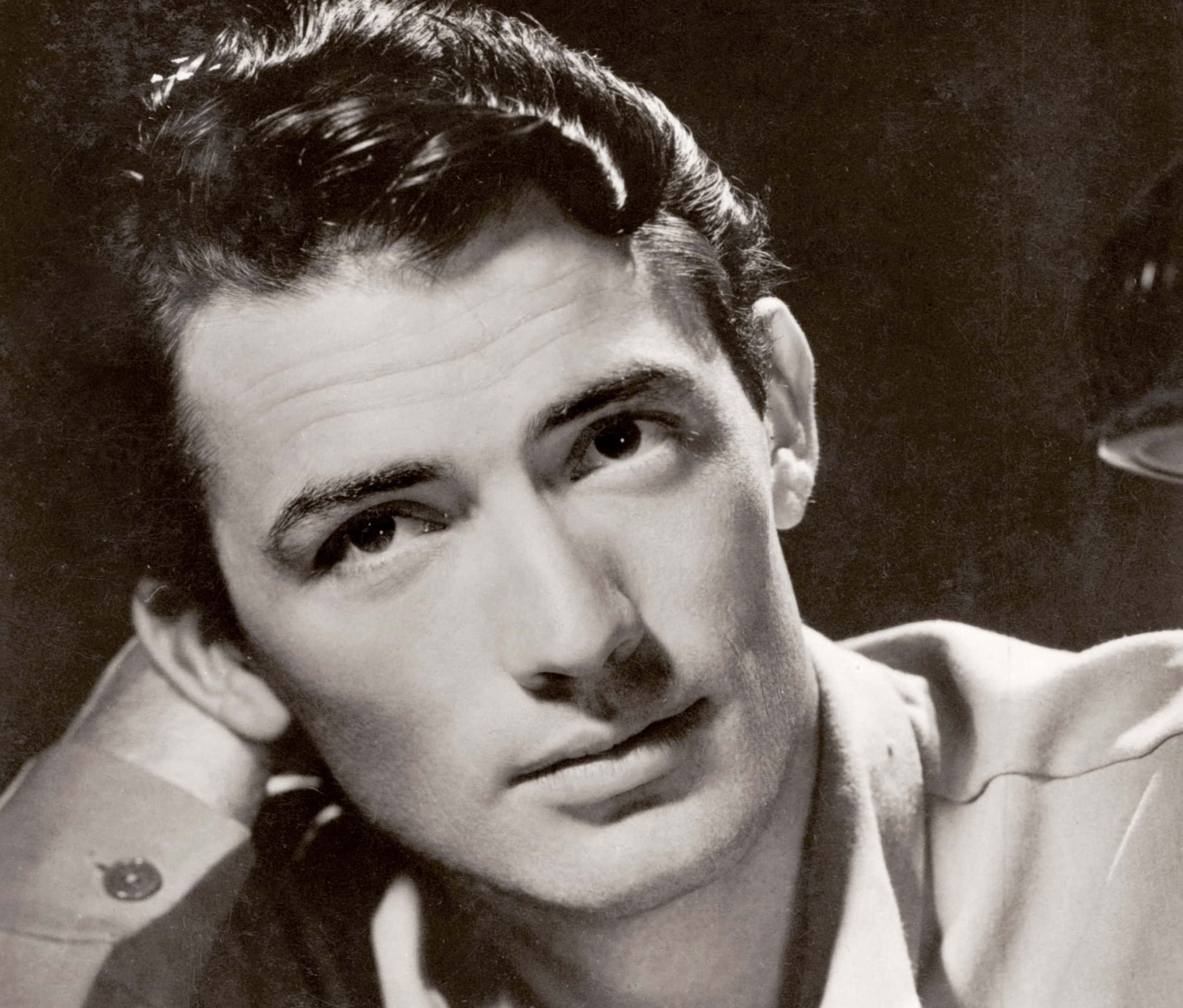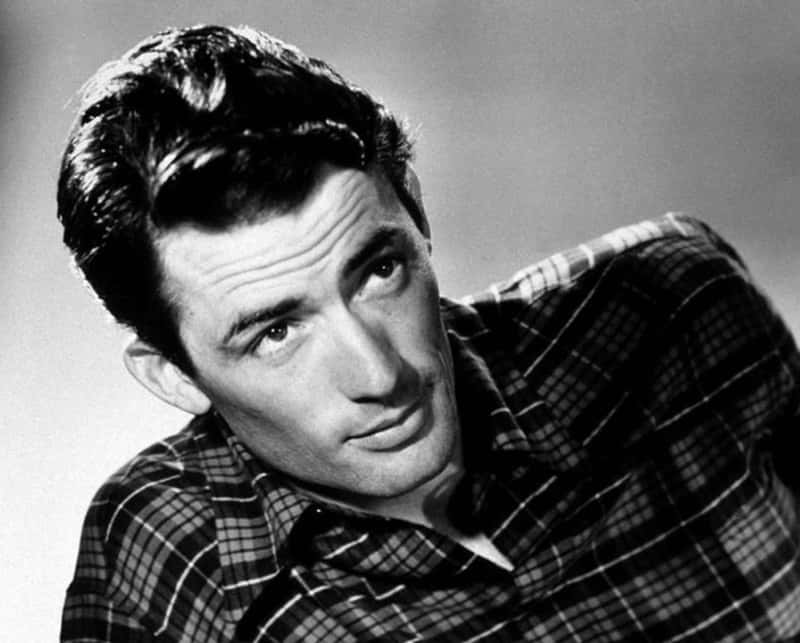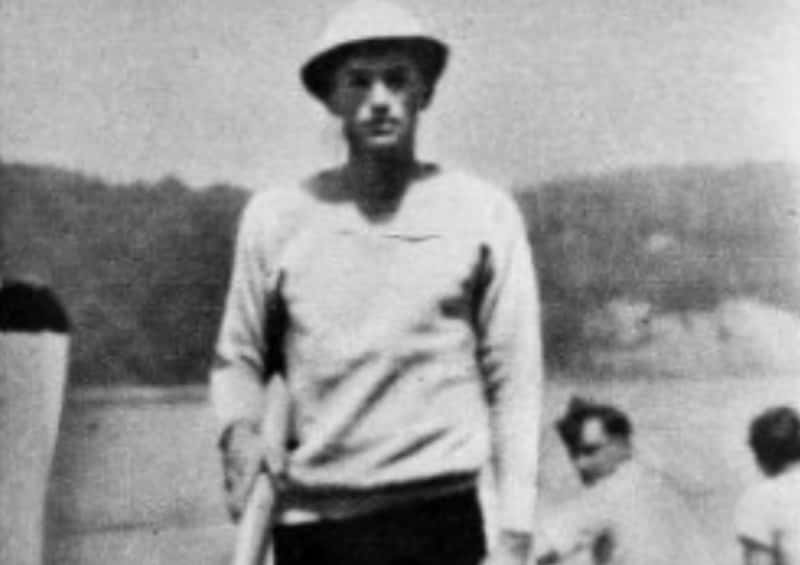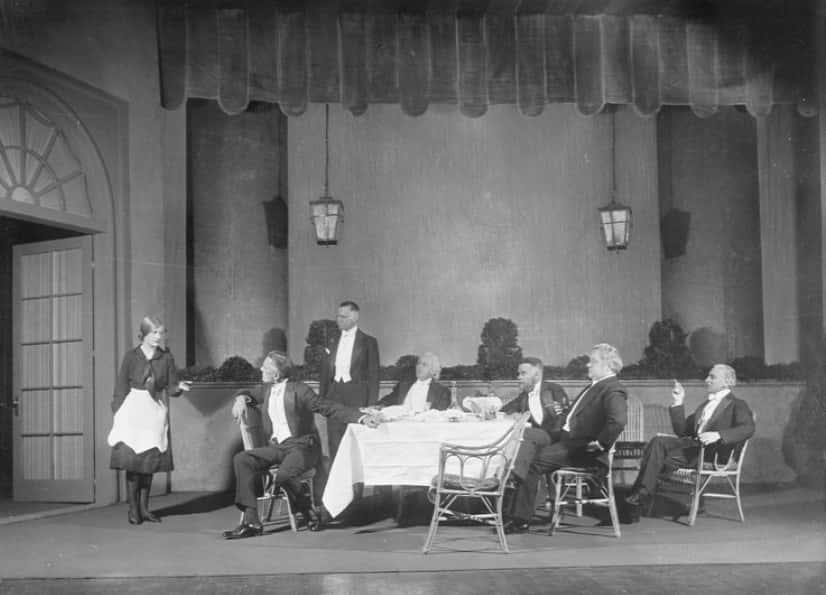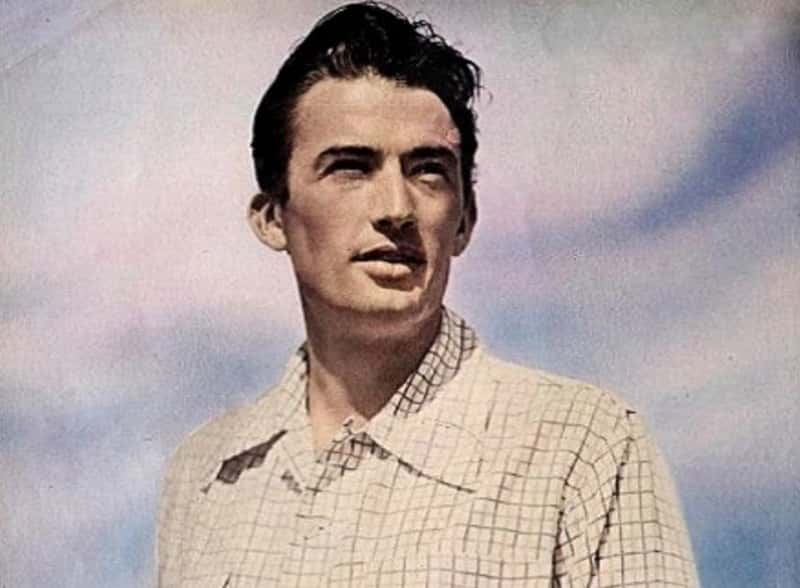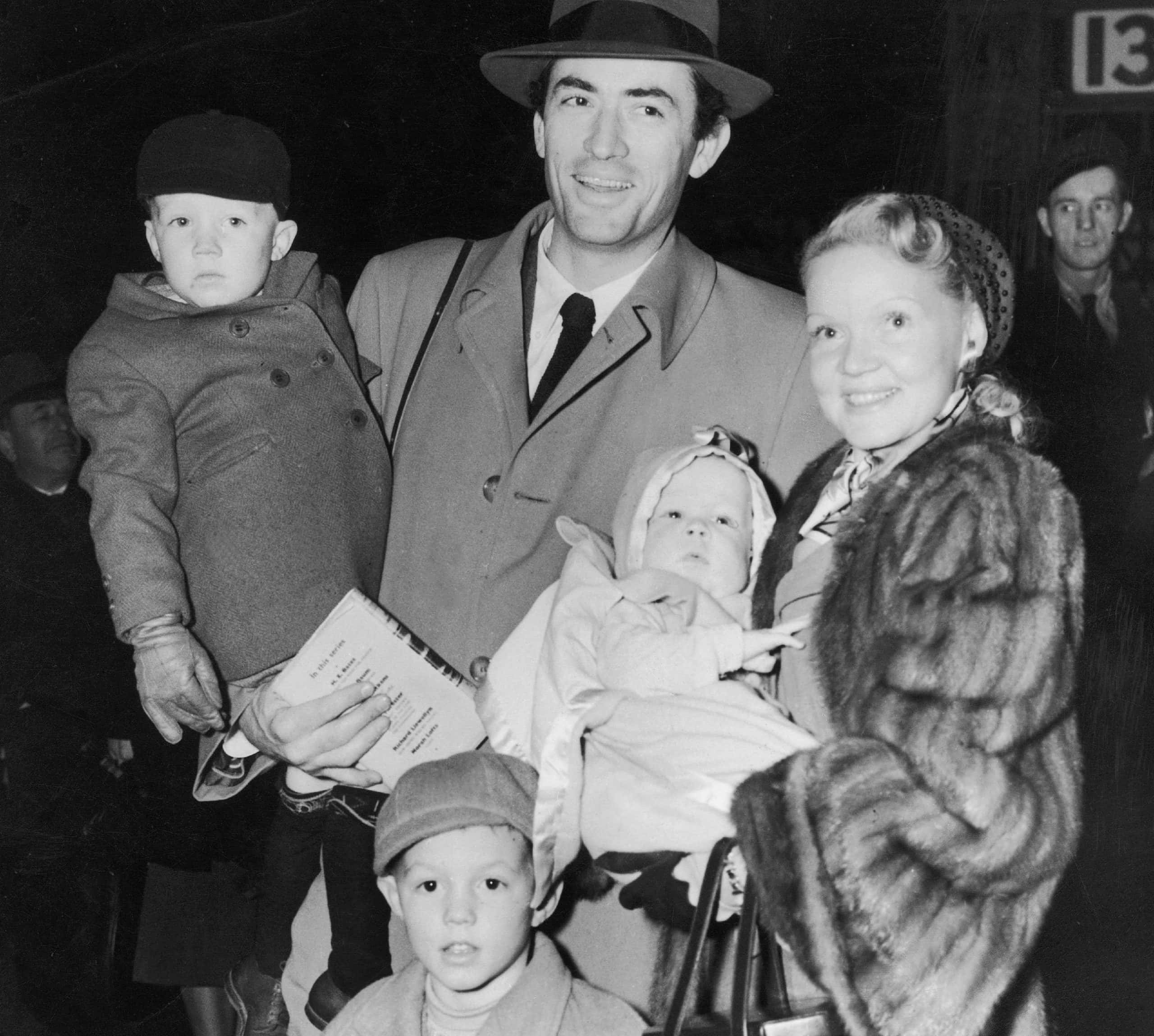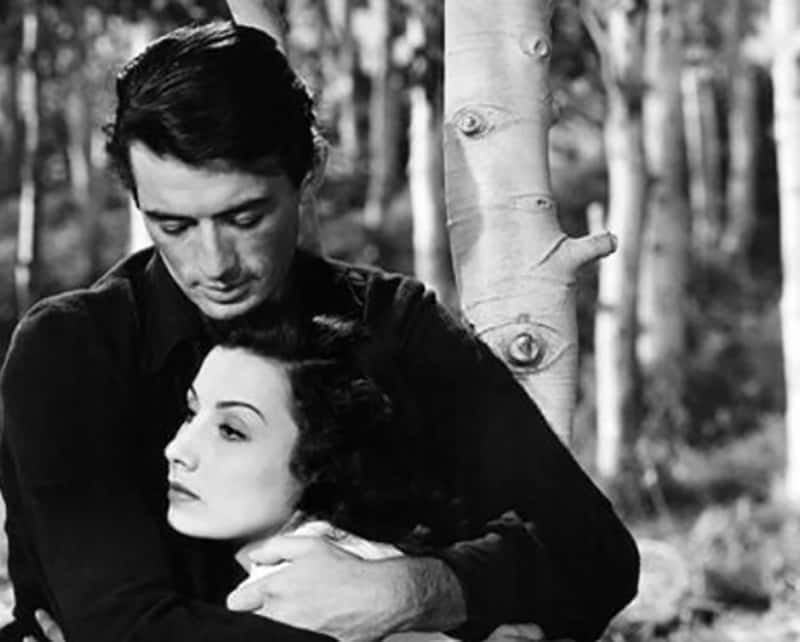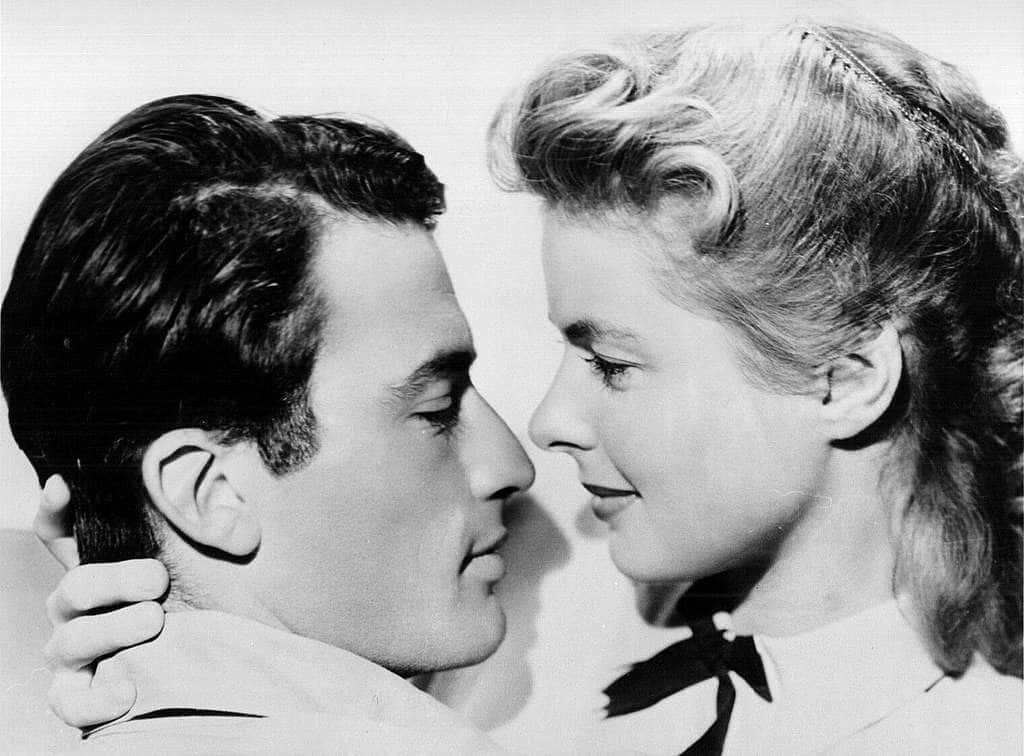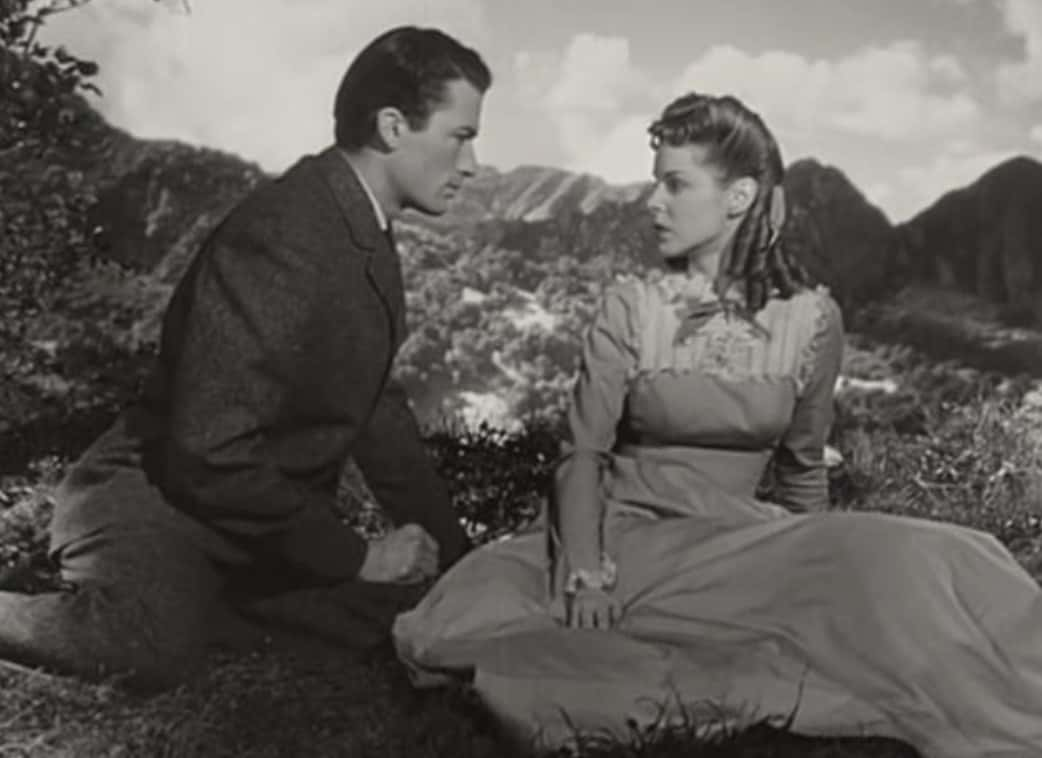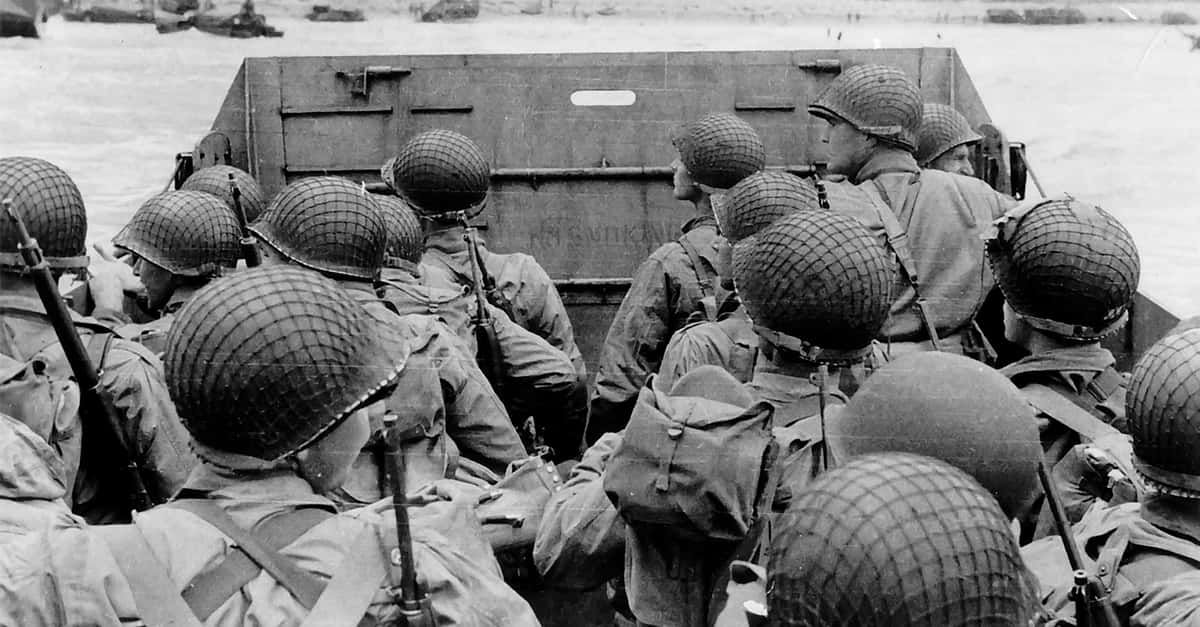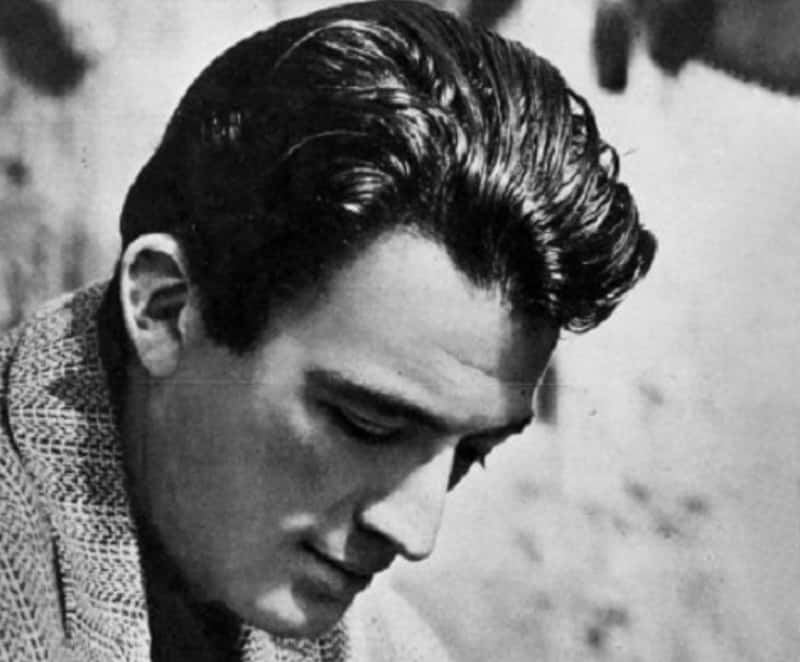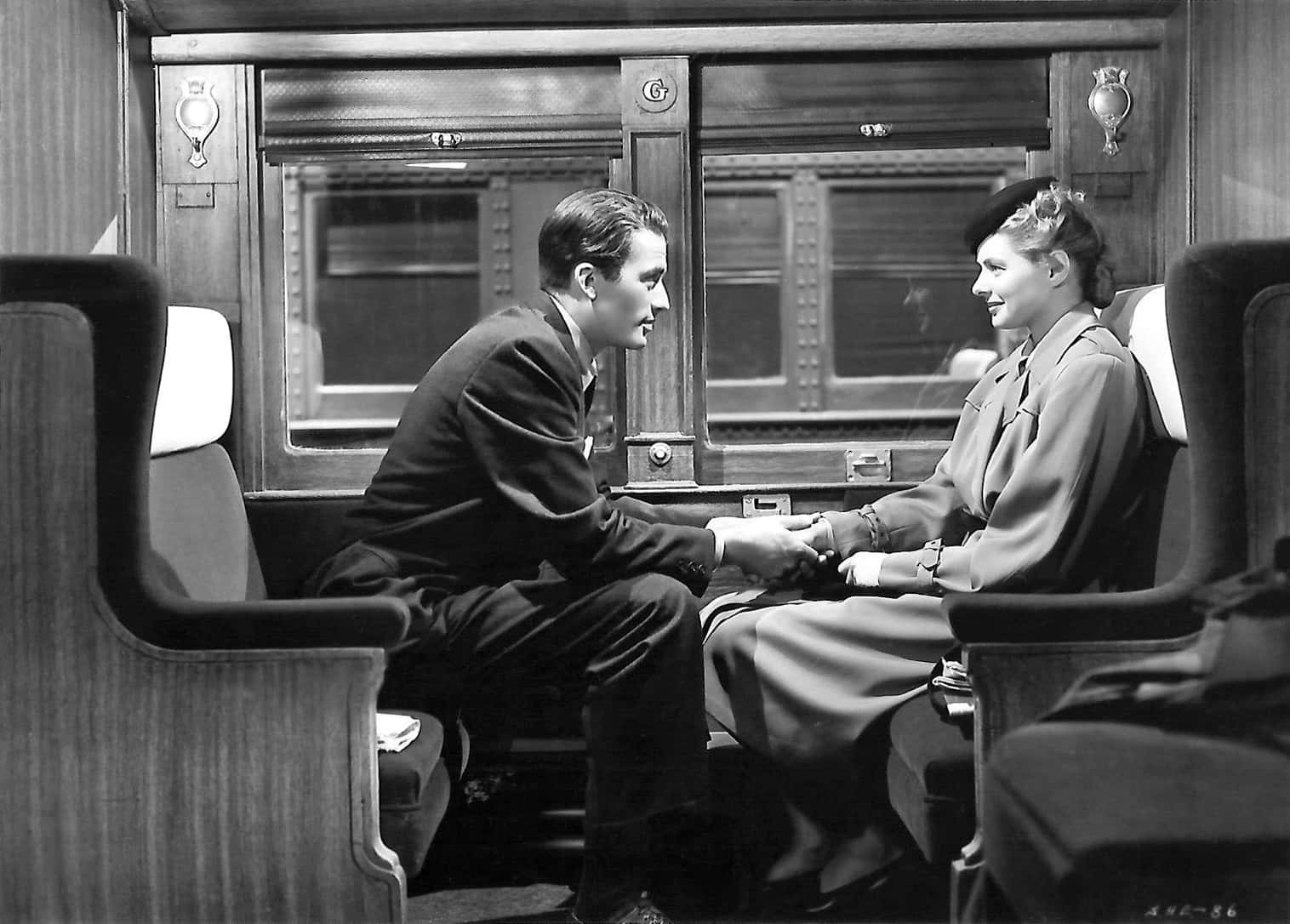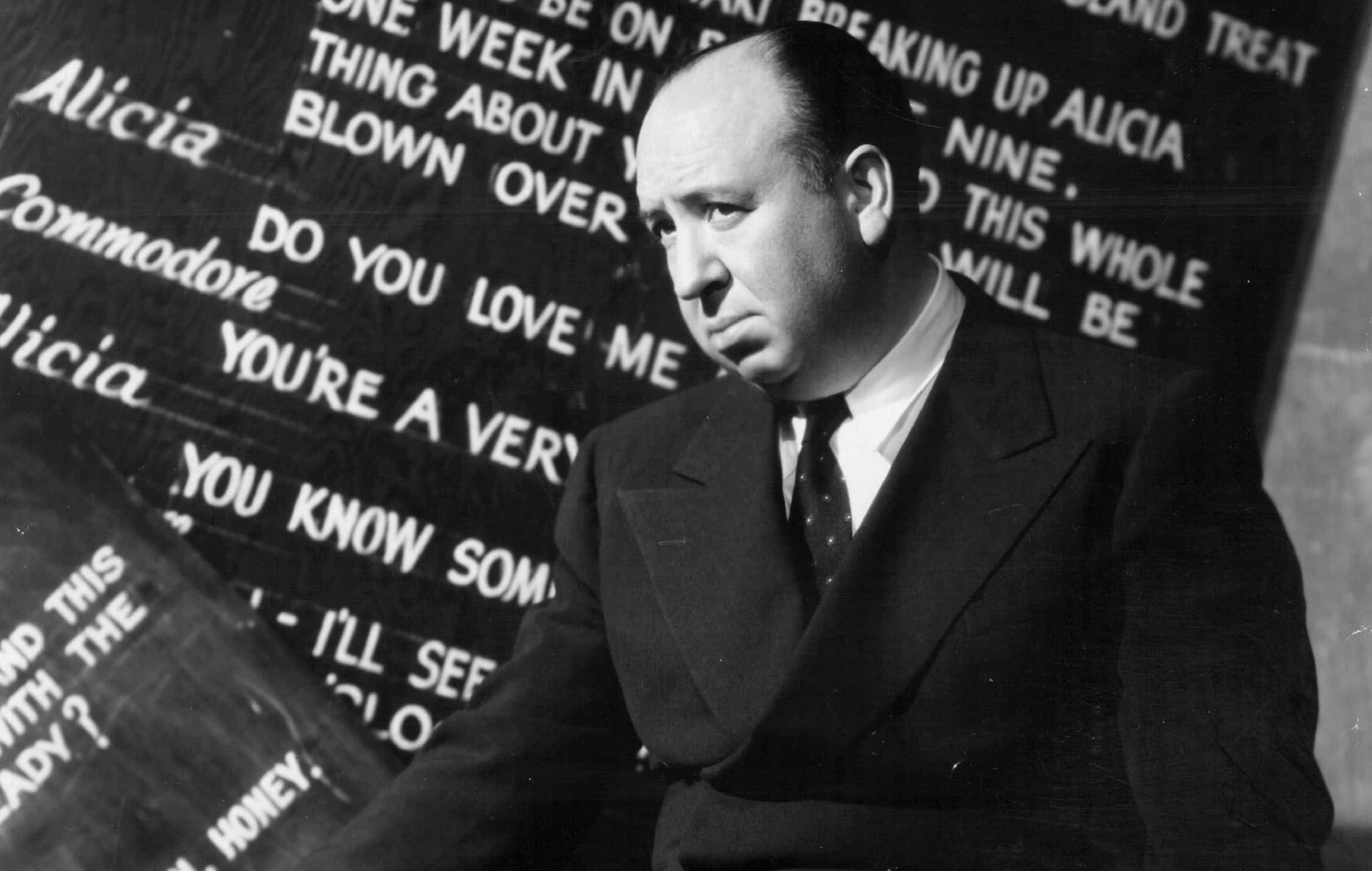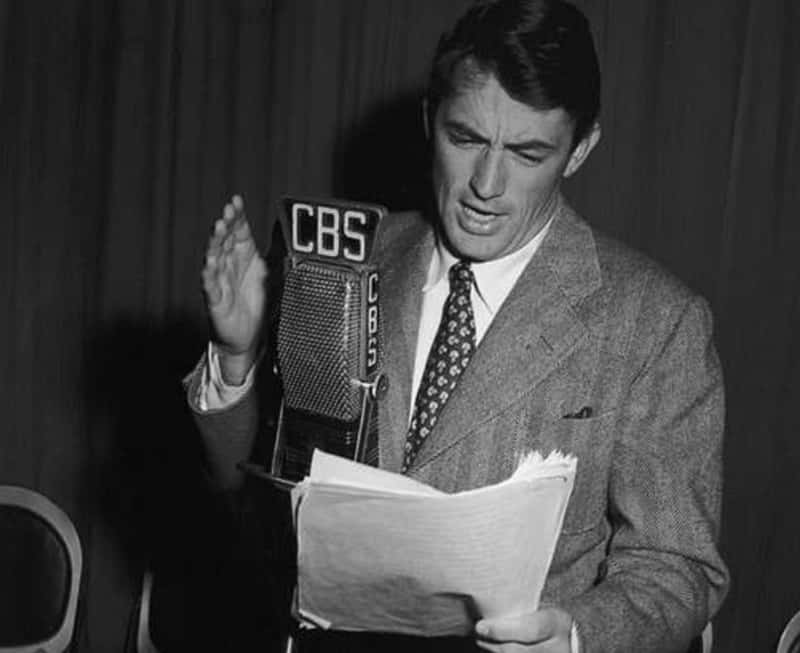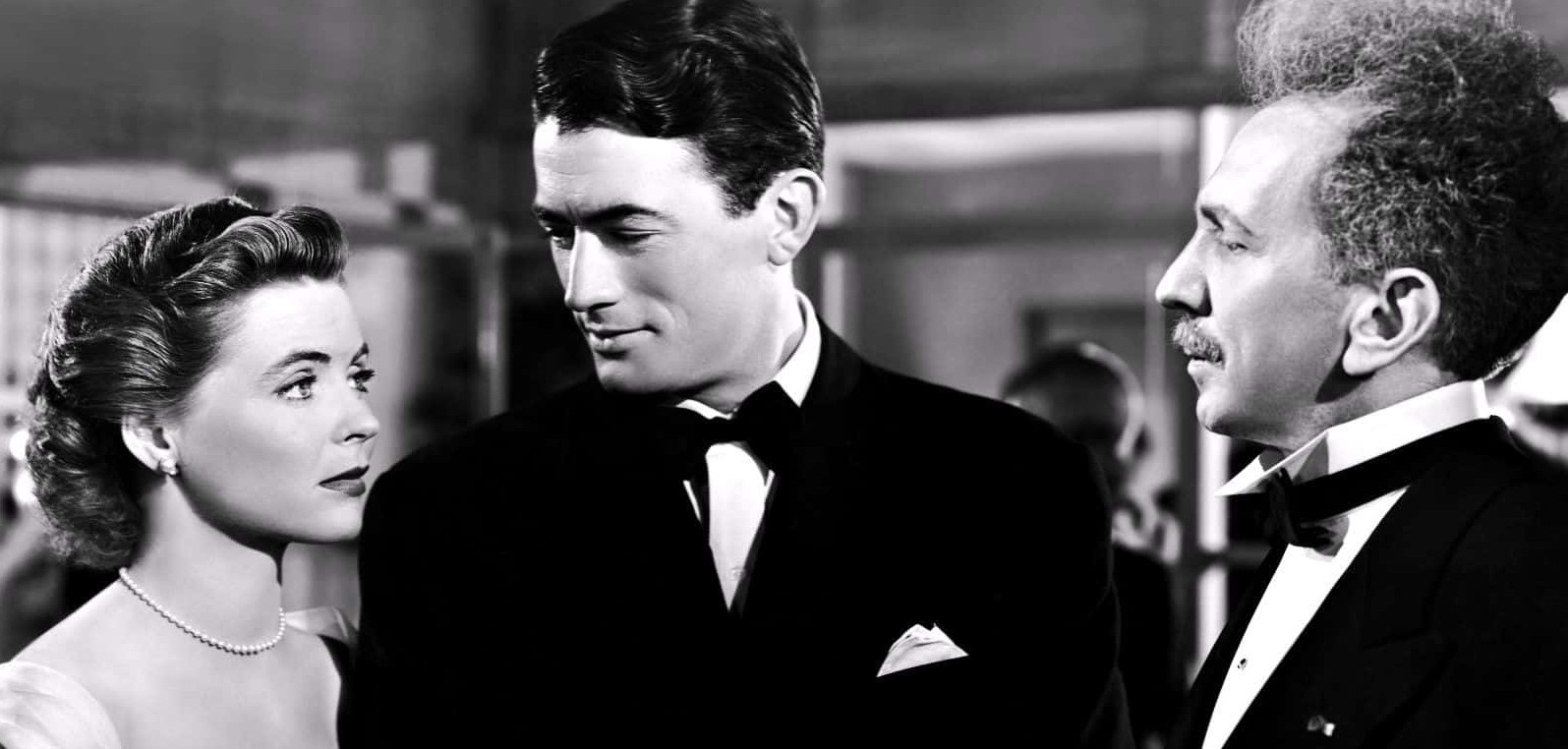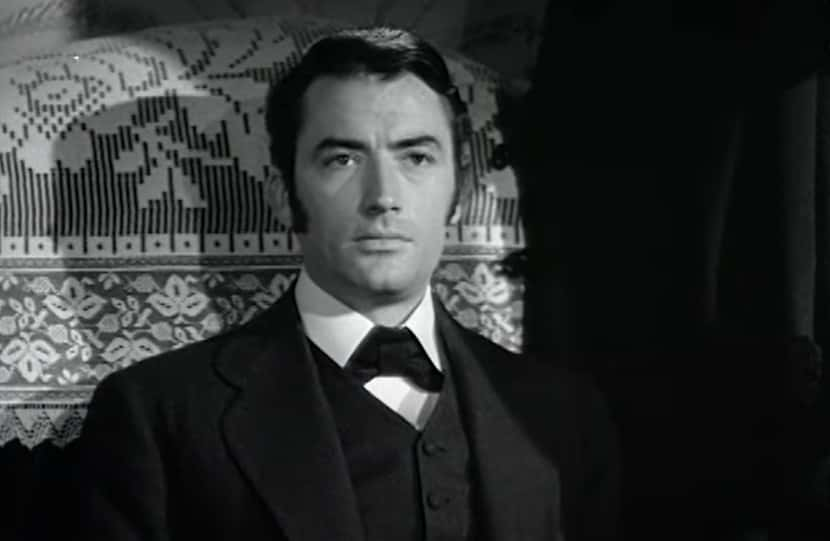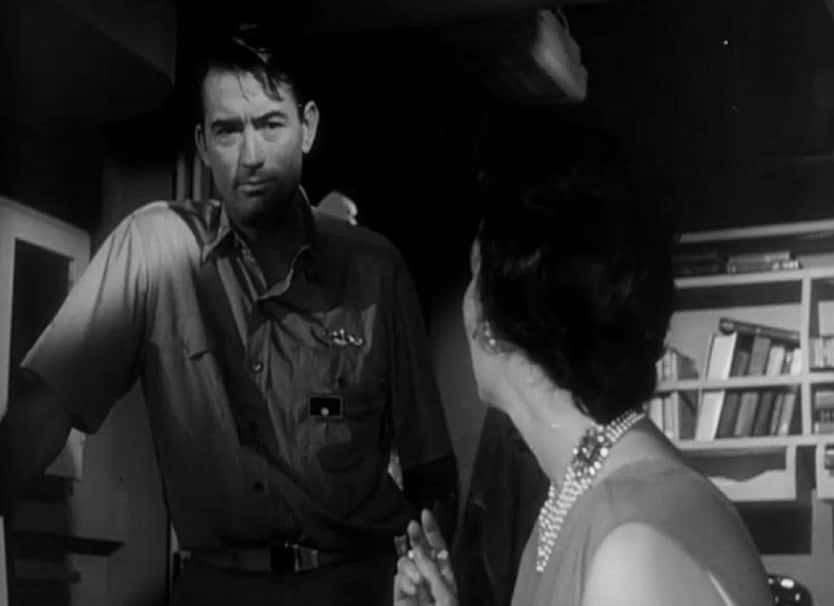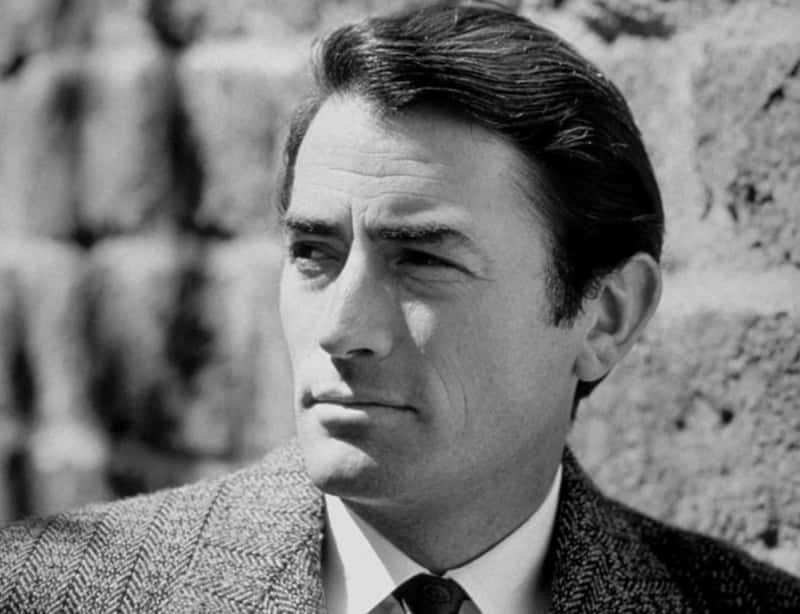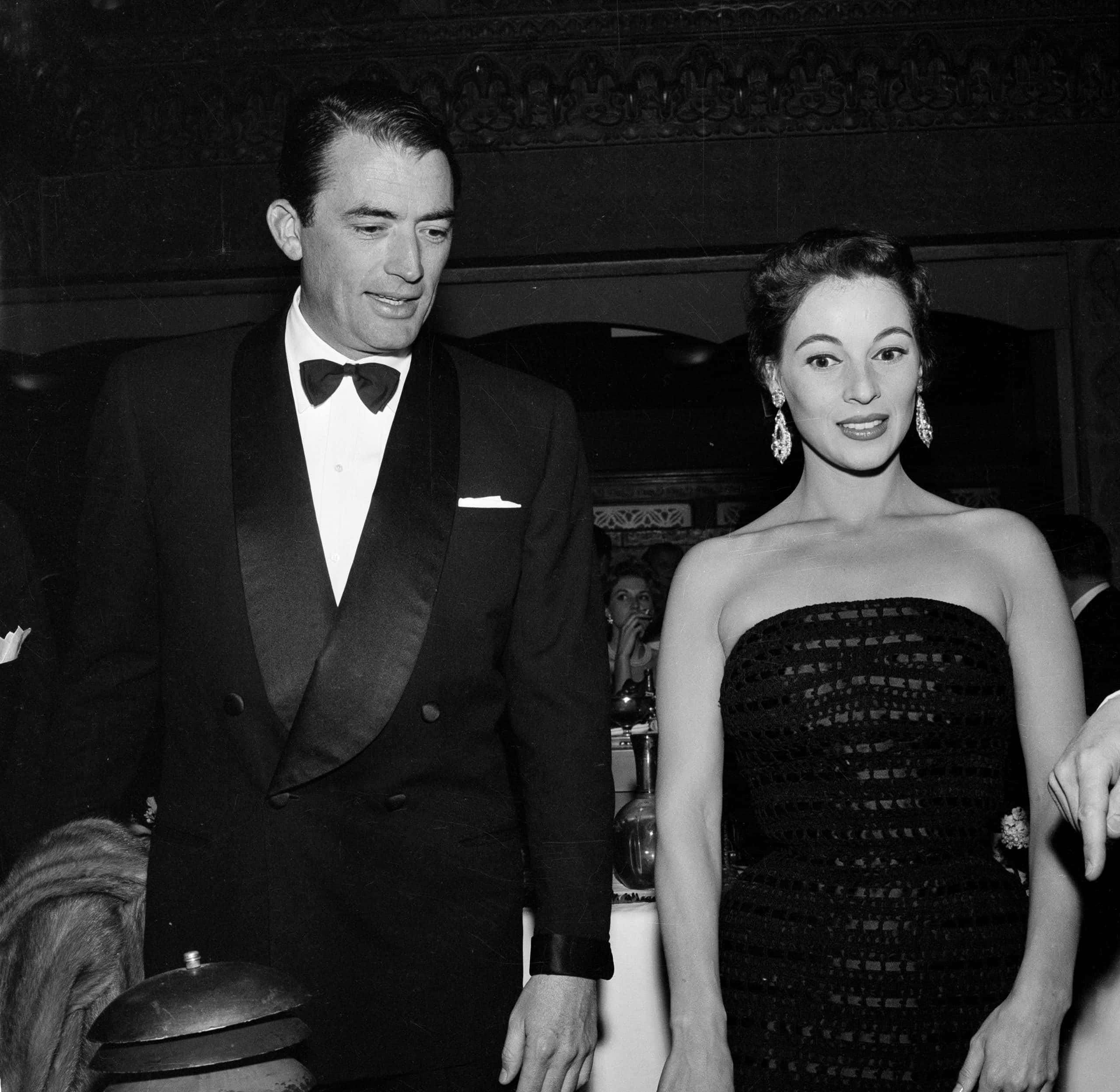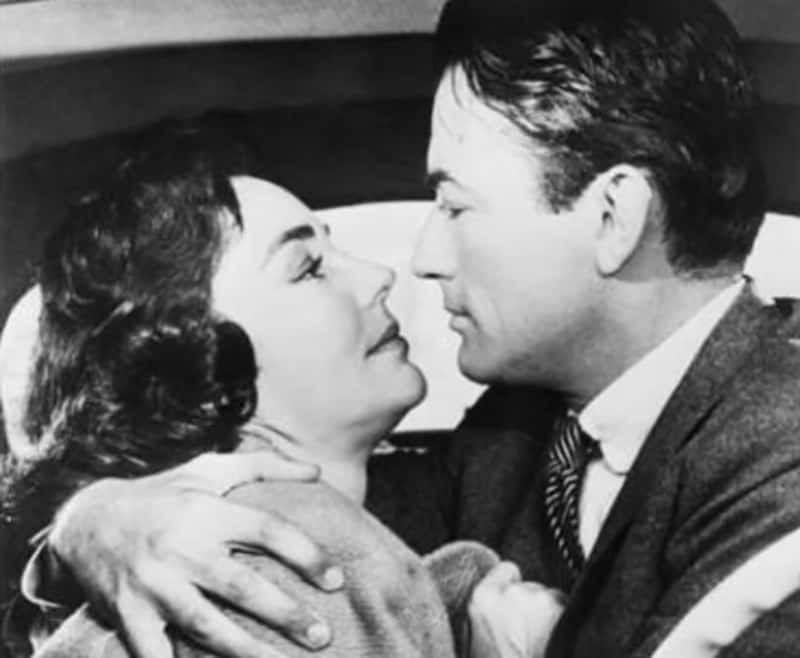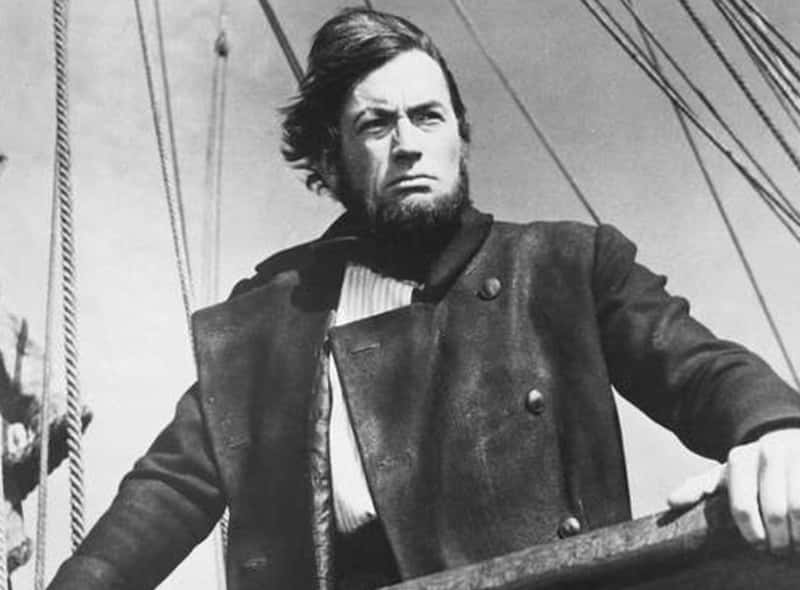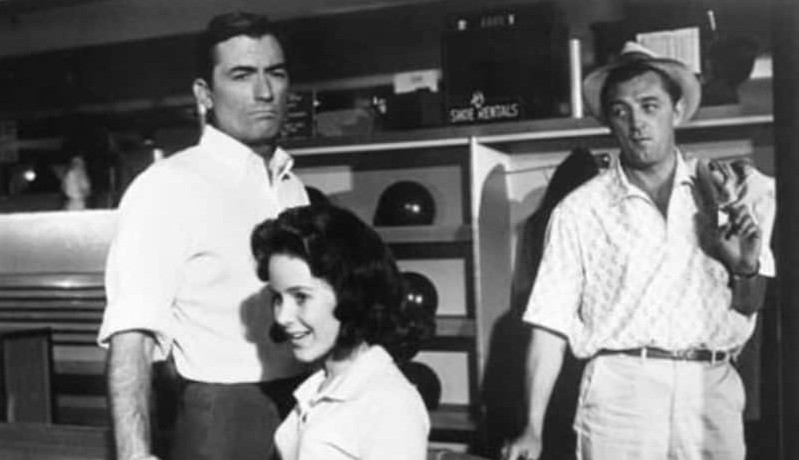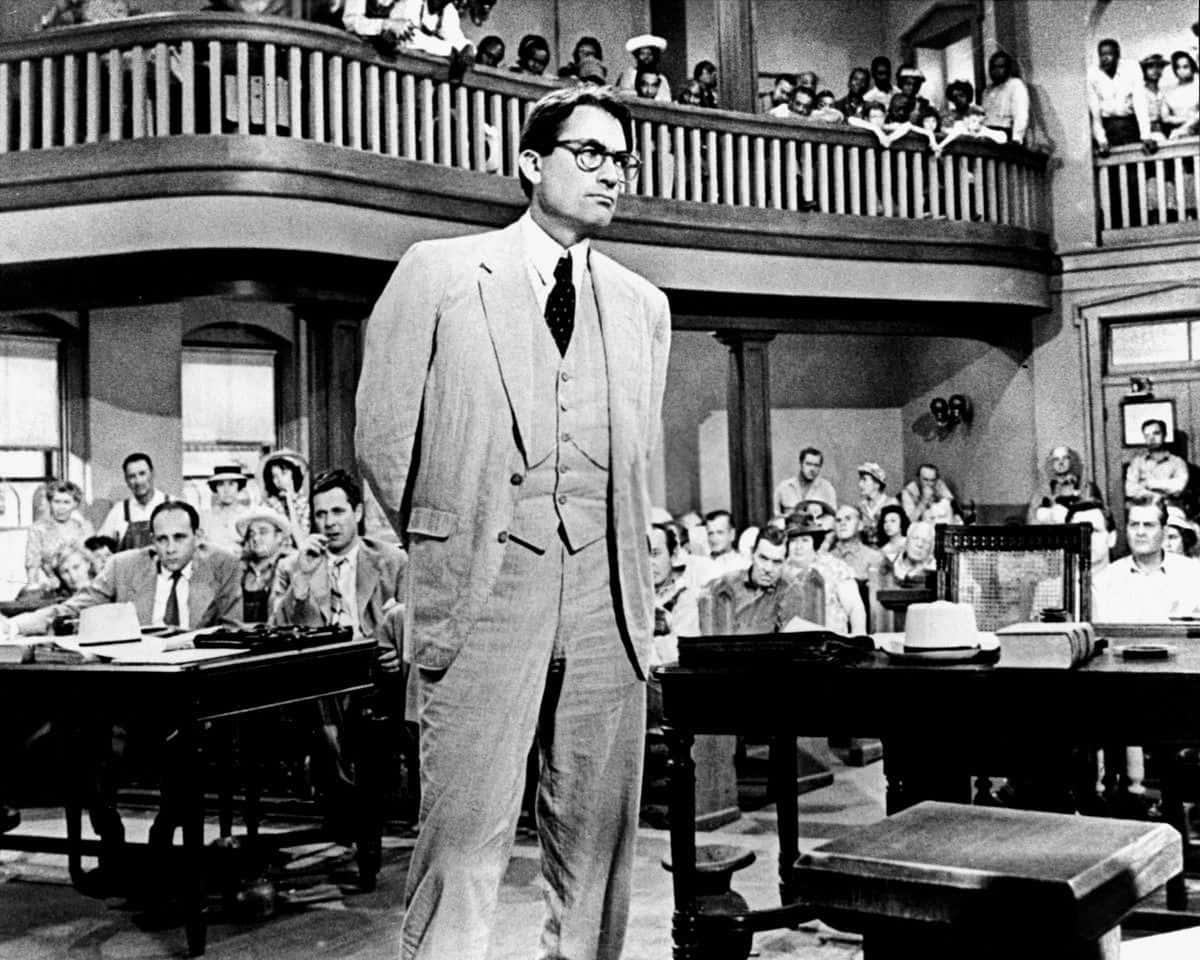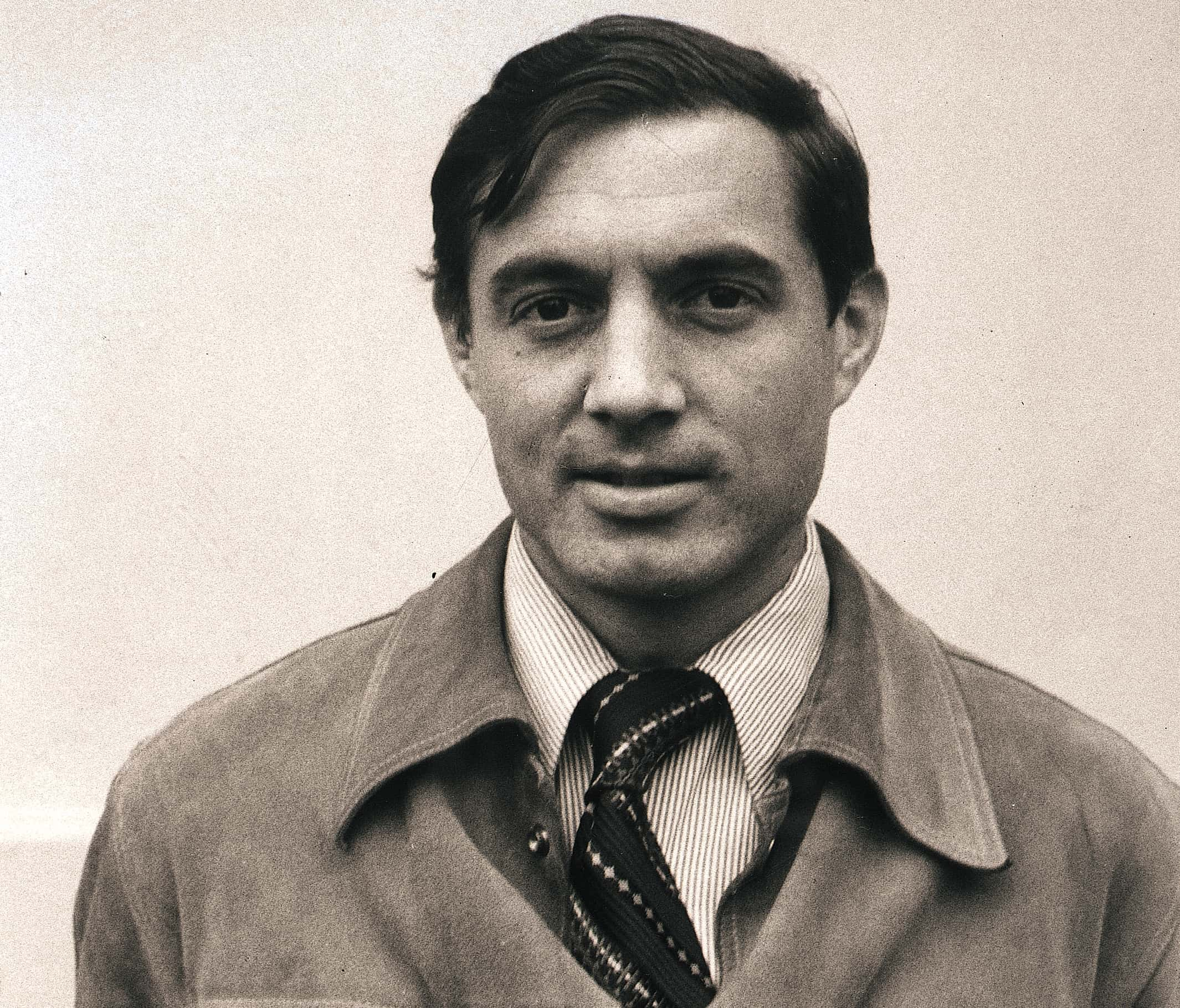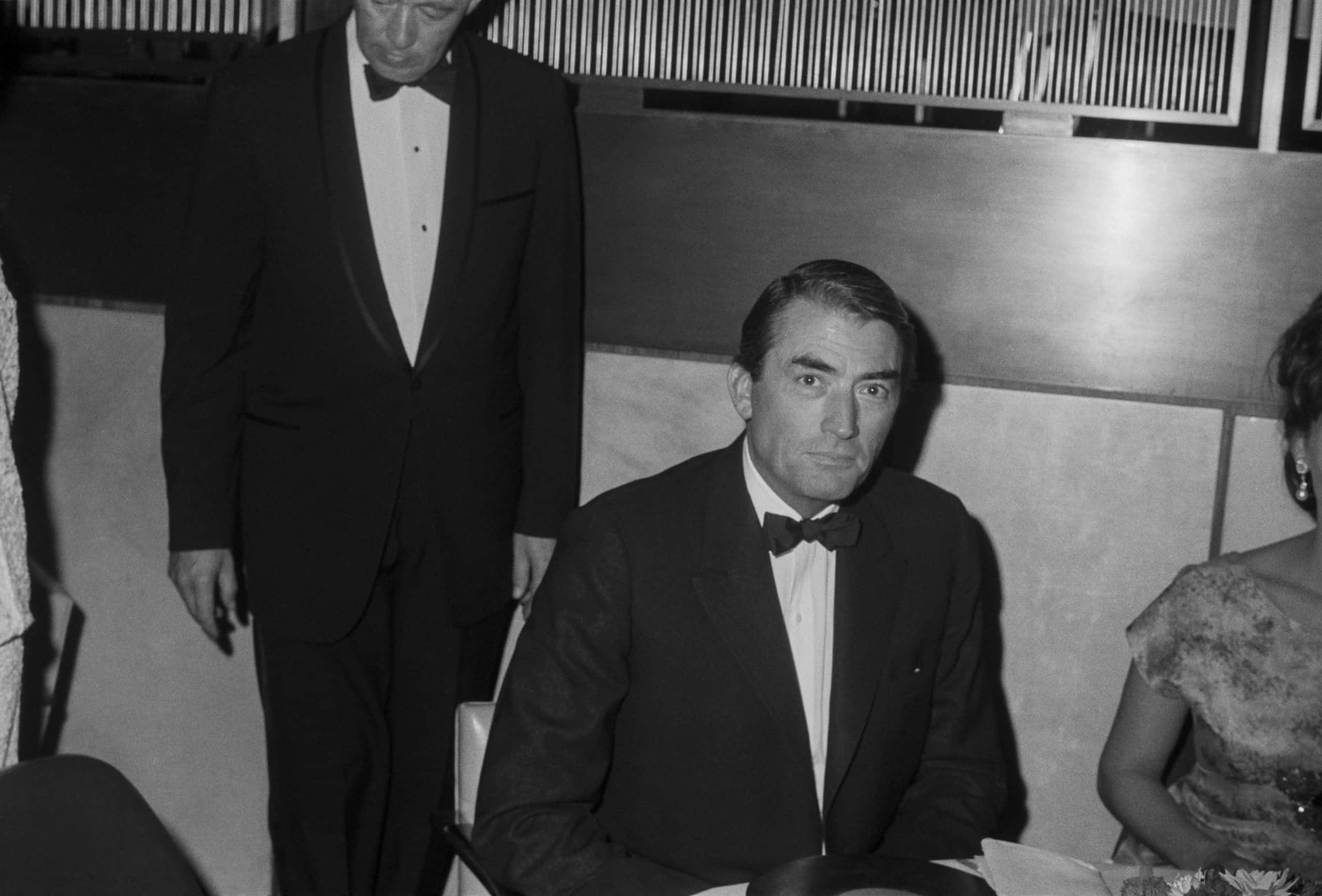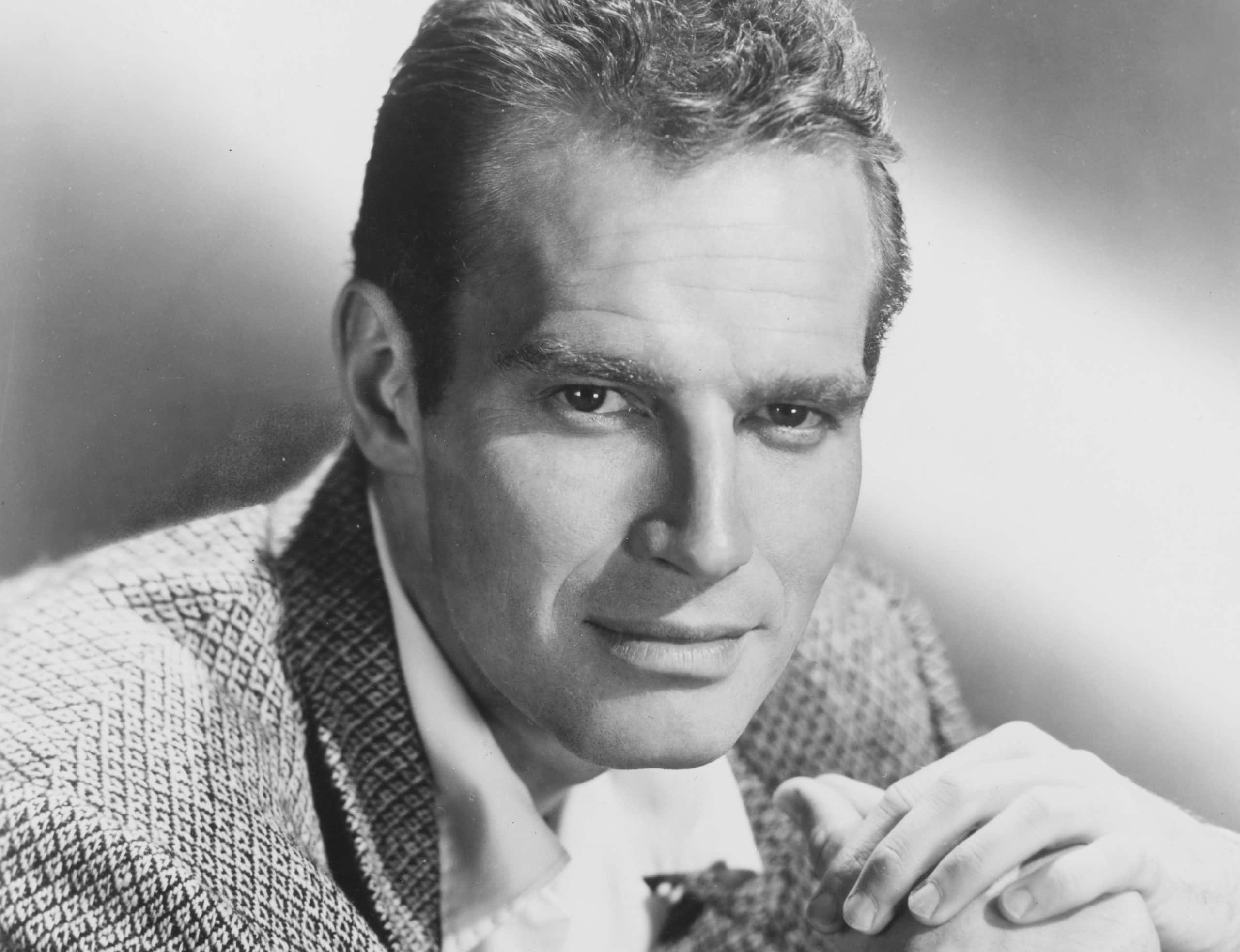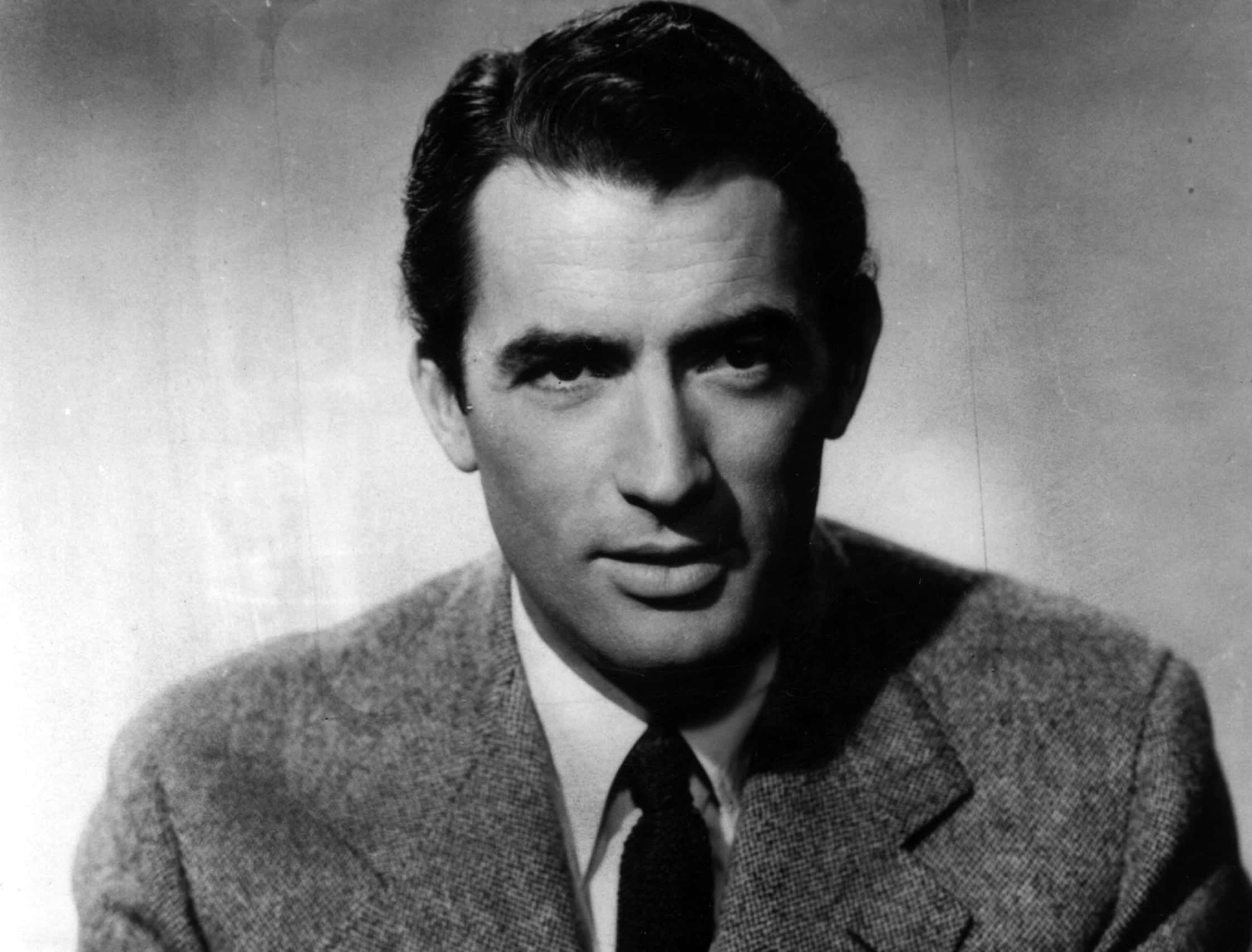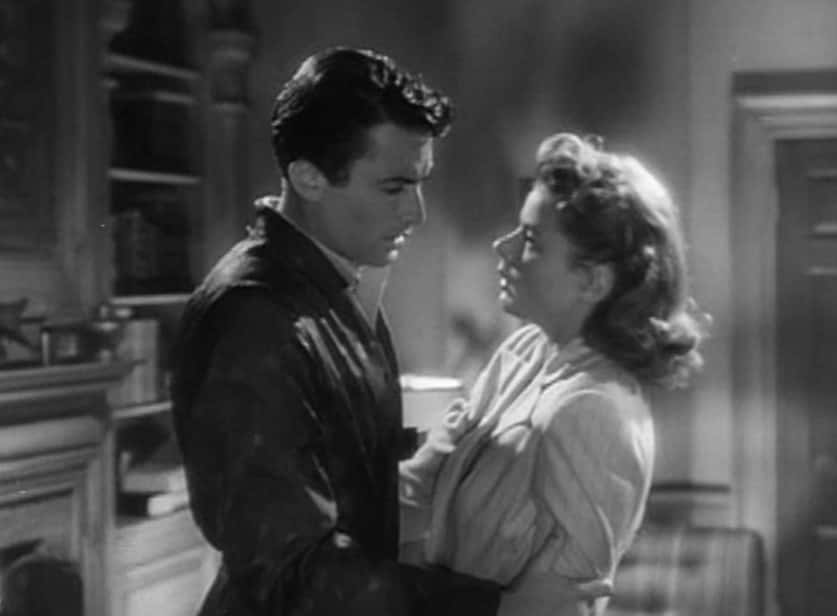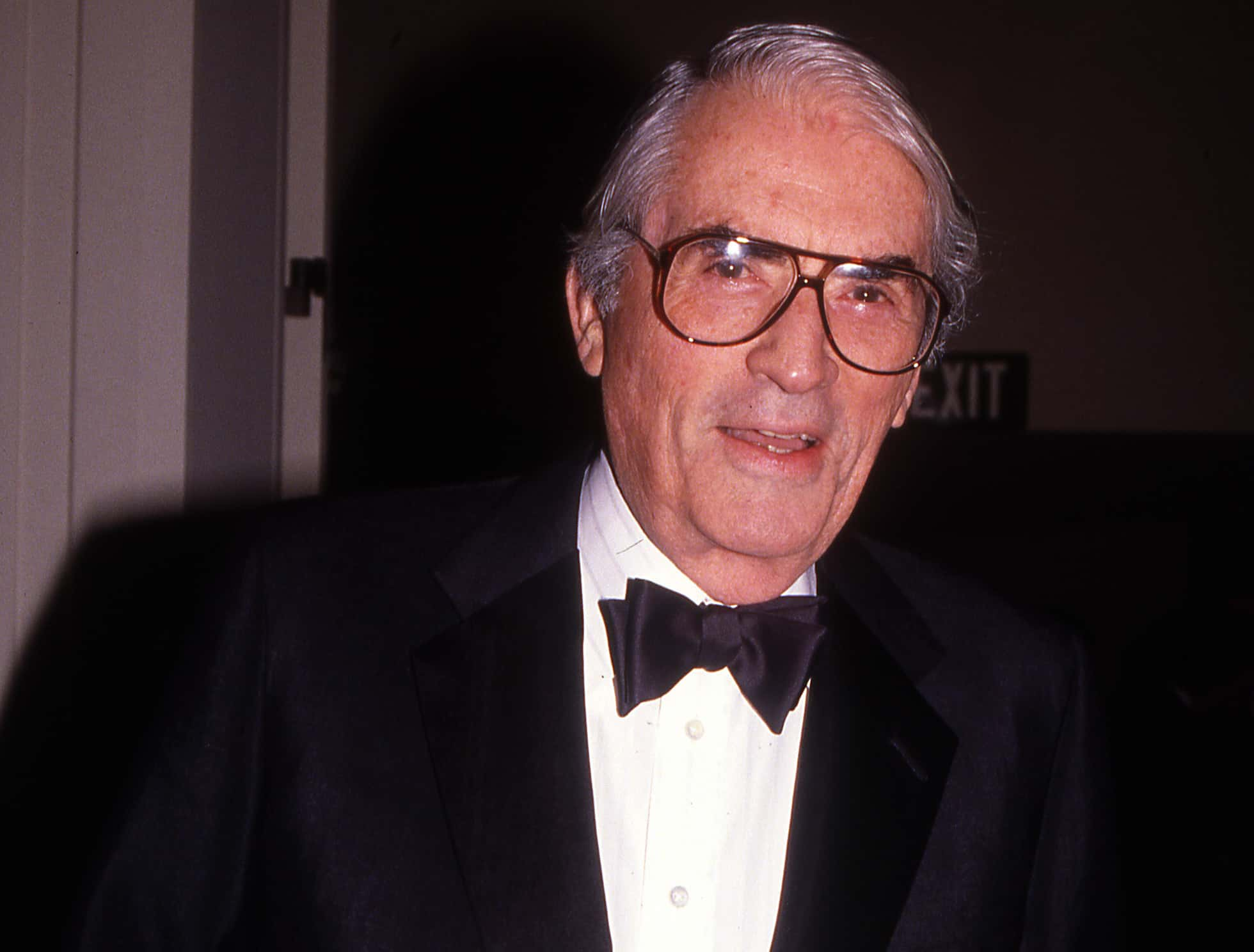When Gregory Peck wasn’t making his fans and co-stars swoon, he was making them think. In both his movies and his personal life, Peck wanted to ask the tough questions—and he wasn’t afraid to put his career on the line to get the conversation going. But while he gained a reputation for being an upright gentleman, Peck wasn't always a saint.
In fact, he kept his greatest secret under lock and key for most of his life—and it was downright scandalous.
1. He Watched Them Fall Apart
Gregory Peck’s birth took place on April 5, 1916, in a seaside neighborhood in San Diego, California. However, his beginnings were anything but idyllic. You see, his parents weren't compatible in the slightest, and by the time he was five years old, he watched sadly from the sidelines as his parents separated. However, this wasn't the most heartbreaking part.

2. He Felt Abandoned
When Peck's parents split, they agreed on only one thing, and it was rather devastating: Neither of them wanted to raise their son. Thankfully, his grandmother stepped up and offered to raise the young boy. No one seems to know why Mr. and Mrs. Peck turned their back on their child, but one thing is clear: Although fate dealt him an unfortunate hand, Peck's early trials only led him to greater things.
3. He Saw Them All
Peck’s grandmother had taken over where his parents had dropped the ball, but it's not clear how good of a replacement parent she was. However, we do know one thing: Once a week, his grandmother would dress him up and haul him off—not to church as you might expect—but to the movies. Peck saw them all, and it certainly had an impact on his future career choice.
However, this pastime wasn't always as fun as it seemed.
4. He Feared The Movies
It turned out that grandma should have been a little more careful in her movie choices. When Peck was just nine years old, she took him to see The Phantom of the Opera. Utterly disturbed by the film, he did something humiliating. Haunted by certain scenes, he slipped into his grandmother's room and slept next to her. Maybe Peck’s absent parents heard about their son’s fear and worried he was growing up soft.
To remedy that, they made an extreme decision.
5. His Days Were Numbered
Peck must’ve been pretty cozy living with grandma and getting carted off to the movies once a week. But his carefree days were never meant to last. Once he reached his tenth year, his quiet life at grandma’s house came to an abrupt end. His parents had made a startling decision: They were sending Peck to a cadet school—and a Catholic one at that.
6. He Suffered A Loss
Giving his grandmother a kiss goodbye, Peck reluctantly went off to cadet school. Tragically, it would be the last time he saw her. While he was away, his grandmother passed, leaving Peck utterly alone. This left his parents no choice: They were obligated to slip back into their son's life...or at least, one of them had to. In the blink of an eye, his life had turned upside down...but this was only the beginning.
7. He Felt Lost
Soon, Peck found himself living with dad and attending San Diego High School. In 1934, he transferred to teachers college. It was here that Peck found something he loved—theater. He started taking courses in acting and public speaking. Theater classes were going well, but teaching school? Not so much. Peck needed a change, but, instead of switching to full-time acting class, he made a shocking decision.
8. He Couldn’t Pay
Clearly, Gregory Peck couldn't see the writing on the wall and, instead of theater, he decided to study medicine. As we already know, this ambition was doomed from the start. In order to study medicine, Peck enrolled at the University Of California in Berkeley. Although his yearly tuition was a measly $26 a year, poor Peck barely made enough to cover the cost.
To make ends meet, he took a job that raised a lot of eyebrows.
9. He Fed The Ladies
Peck needed money to pay his tuition and he had to earn it somehow, so he took a rather demeaning job: He became a hasher—a kitchen helper. It wasn’t so much the job that was scandalous, but it was where he chose to do it—the Gamma Phi Beta sorority. Imagine the sorority sisters’ delight when they peeked into the kitchen and saw a six-foot-three rowing team member flipping hot cakes for their breakfast.
His appearance was definitely imposing, and apparently, he had a voice to match—warm as honey, and downright swoon-worthy.
10. He Finally Saw The Light
Around campus, Peck got a lot of attention for his voice. It was deep and well-modulated and aroused the attention of an acting coach. Through the coach, Peck finally realized that he should be studying acting and not medicine. Soon he was appearing in plays—five in his senior year alone. He later said that his time in Berkeley was the best of his life.
Peck felt he was finally ready for the real world, but was he really?
11. He Took A Bite Of The Big Apple
Peck felt he was ready to leave Berkeley, but unfortunately, he was short one course. Impatient and impulsive, he made a reckless choice, leaving the campus without his hard-earned degree. For Peck, however, the clouds had finally cleared. He knew exactly what he wanted to be, and headed straight for the Big Apple with dreams of being a star on Broadway.
His first stop was the Neighborhood Playhouse for some expensive classes. But while his lessons were in a playhouse, his bedroom was sometimes in a surprising and dangerous place.
12. He Lived Rough
Peck was living the dream, stretching his long legs as a struggling actor in New York City. But, before long, his bohemian lifestyle took a tragic turn. At times, Peck was literally homeless and had to sleep in a very scary place—Central Park. He desperately needed an income so he could continue learning his craft and attending auditions.
Acting certainly wasn’t paying the bills, so he turned to some rather unusual jobs.
13. He Barked
To make ends meet—and to stay out of the park—Peck worked at the 1939 World’s Fair. There, he was a barker—that annoying guy who speaks in a rapid-fire voice and encourages passersby to pay for a show. He also joined the page program at 30 Rock and gave tours there and at Radio City Music Hall. All this, however, was just putting in time until his star would rise.
14. He Had A Huge Dilemma
When Peck got his first real role, it was in San Francisco, not New York City. The Doctor's Dilemma was a play by George Bernard Shaw and it opened in December 1941. To his delight, Peck was finally starting to make a living as an actor, which meant he could afford a roof over his head. But, one week after the play’s opening, a world-scale tragedy struck: The Japanese hit Pearl Harbor.
The United States was now a participant in WWII and needed every available young man. Was this already the end of Gregory Peck's acting career?
15. He Had An Out
It seemed like a sure thing that Peck, all six feet of him, would have to serve his country during WWII—except he had an out. Back in acting school, Peck had injured himself while training. The rigors of dance had gotten the better of him and he'd severely injured his back. Because of this, the army simply didn’t want him. Well, the army’s loss was Broadway's gain.
16. He Got Busy
Because the US government had called so many young men to fight for the country, there was a shortage of men. Peck picked up the slack and, during WWII, appeared in 50 plays—three of them on Broadway. He also did road tours and summer theater. The fight in Europe, while a colossal tragedy, was doing wonders for Peck’s stage career.
Sure, he was getting roles, but Peck was also using the shortage of men to his benefit in another, more sordid, way.
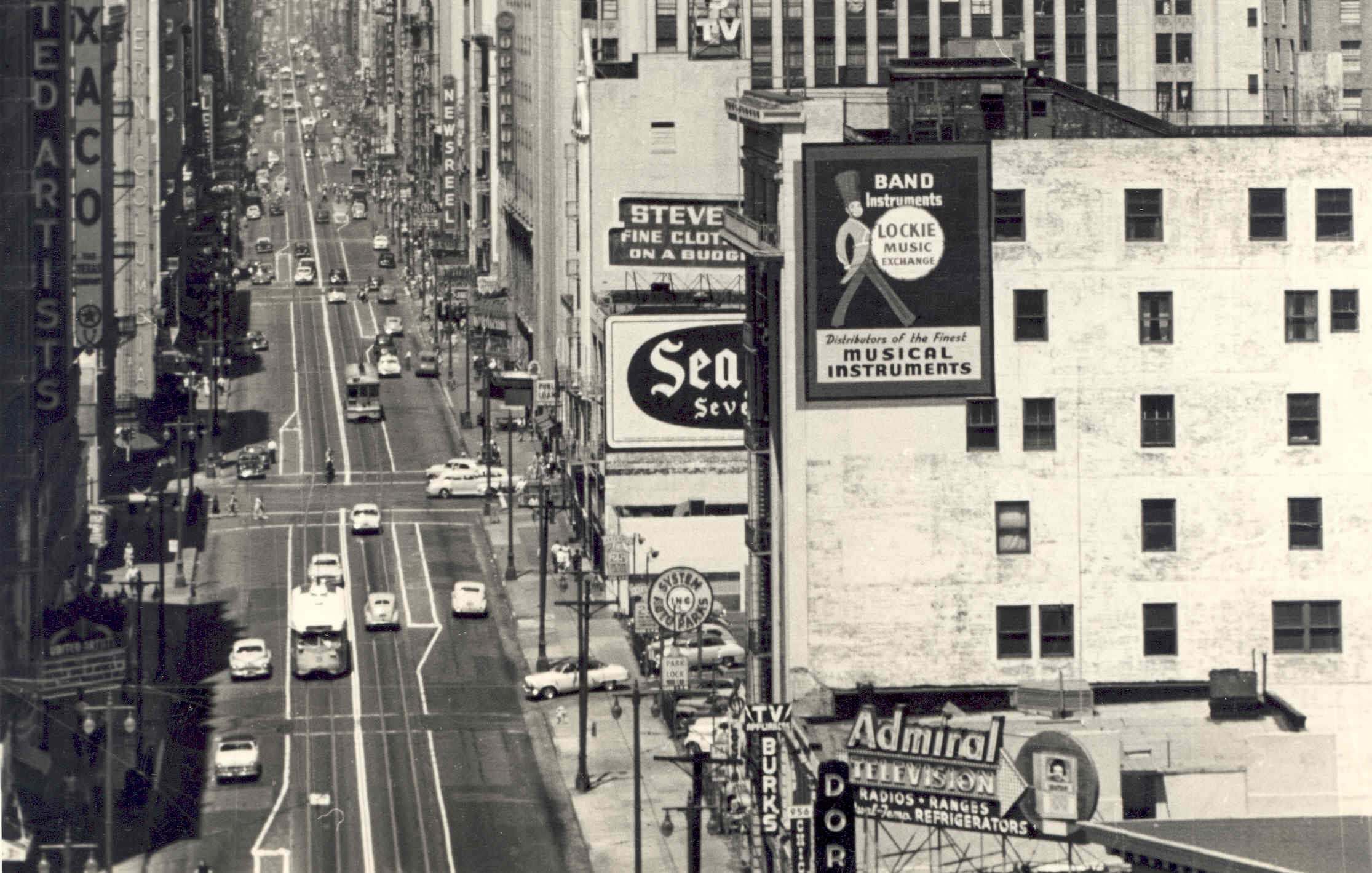 Flickr, Metro Library and Archive
Flickr, Metro Library and Archive
17. He Picked A Winner
With so many men off fighting, Peck certainly had his pick of the ladies. After much searching, he finally decided on Greta Kukkonen. She was a Finnish beauty and businesswoman who was—cue the gasp—five years older than him. The two married in 1942 and went on to produce three children: all boys. But the scarcity of men didn’t just help Peck find a wife.
It also helped him with a major shift in his career.
18. He Needed Untraining
In 1944, Peck moved over to film and his first try was Days of Glory. Ironically, it was a movie set in WWII—a situation Peck hadn’t experienced. In addition to not knowing his way around the trenches, Peck also didn’t know his way around film acting as he’d only ever been on stage. To make his performance more natural the director of the film spent a considerable amount of time “untraining” him.
However, based on the critical response, it wasn't enough.
19. He Was Stiff
Critics didn’t like Days of Glory and they didn’t particularly like Peck. The New York Times gave Peck the worst review of all: They called his acting stiff. However, because of the shortage of male actors, producers still wanted him for their rosters. But, even though he didn’t have much reason to be confident, he somehow stood up to the powerful and intimidating studio heads.
20. He Had Commitment Issues
Peck didn’t want to be stuck doing the roles that a single studio offered him. So, instead of signing a contract with one studio, he bucked the system and signed on with four different studios. This was totally unheard of back then. Peck had it made: He was a freelance actor and could cherry-pick any role he wanted. That being said, he ended up choosing the part of a lifetime...literally.
21. He Aged Well
If Peck’s goal was to show off his acting chops, he certainly didn’t hold back in his choice of role. In 1944’s The Keys of the Kingdom, Peck plays a priest who is not only in almost every scene but has to do the near-impossible: age from his twenties to his eighties. Peck absolutely needed it to be a big hit—but the film was a huge risk.
22. He Stood Out
Unfortunately, critics saw The Keys of the Kingdom as long, talkative, and lacking some much-needed drama. And to make matters worse, it certainly didn't perform at the box office. Was this the end of Peck’s career? Not even close. In a happy twist, the critics overwhelmingly loved Peck’s performance, and he even received a nod from the academy for best actor.
20th Century Fox was over the moon with their new star, and they would do anything necessary to make the public fall in love with him.
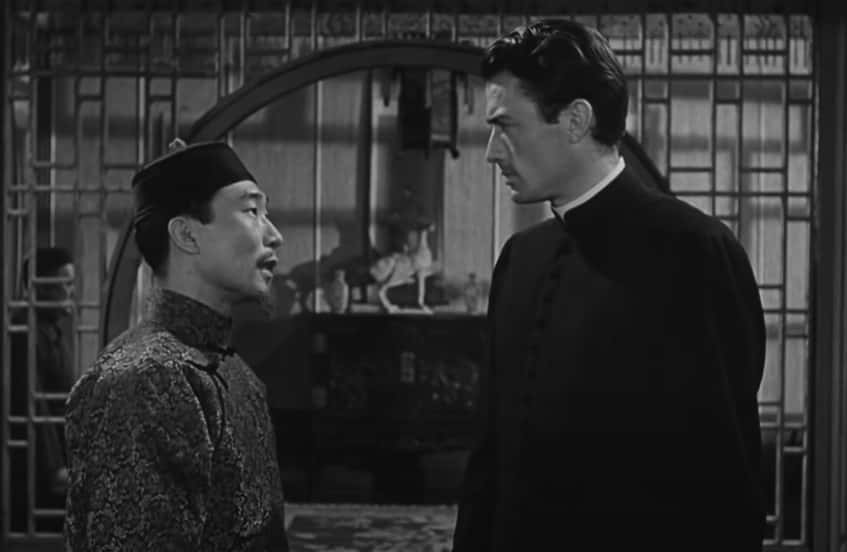 The Keys of the Kingdom (1944), Twentieth Century Fox
The Keys of the Kingdom (1944), Twentieth Century Fox
23. They Wanted To Know
Peck had caught the attention of the movie-going public, and they wanted to know more about him. One of their first questions was: Why the heck was he not serving his country? WWII was still raging and yet Peck remained stateside. The truth—that he’d hurt his back doing modern dance—was not something 20th Century Fox thought would enamor him to his fans.
It was time for the studio to do what they did best: lie their heads off.
24. He Was All Man
The suits at 20th Century Fox wanted to portray their new big star as macho. So, Peck’s little tumble in dance class wasn’t going to cut it as an excuse for not fighting for his country. They painstakingly searched Peck’s history, and found the perfect fabrication: They said he’d hurt himself during rowing practice. This excuse helped preserve his hyper-masculine image.
But was he man enough to face his next intimidating director?
25. He Got Selective
Peck continued to pick and choose roles that would showcase his remarkable talent. In 1945, he opted to work with suspense king Alfred Hitchcock. The film was Spellbound—a romantic thriller with sultry and controversial co-star, Ingrid Bergman. While it was true that Peck chose to work with Hitchcock, you could say that the feelings were not mutual.
26. He Got A Cool Reception
The crew working on Spellbound began noticing something very strange: Hitchcock wasn’t all that friendly with Peck. The two were cordial, but their interactions were very cool. Peck was still relatively new to Hollywood, so the director’s attitude was doing a number on his confidence. It took a while, but Peck finally found out the truth—and it definitely wasn’t something he wanted to hear.
27. He Was A Consolation Prize
Hitchcock was playing it cool with Peck, and for a very good reason: he didn’t want him in the film. Hitchcock had been counting on the more established Cary Grant for the role, so he was holding a grudge. Working with a director who didn’t want you on the film was, I imagine anyway, grueling and unpleasant work. Peck's only ally seemed to be the alluring Bergman.
But even as onset tension threatened to ruin everything, the outcome of the whole project changed everything for Peck.
28. They Couldn't Shut Up
The producer of Spellbound, David O. Selznick, noticed something odd during the previews of his new film. It turned out that women in the audience couldn’t stop talking to each other whenever Peck came on the screen. In fact, male audience members had to shush the women in the theater. Clearly, Peck's appearance was causing some sort of carnal stir whenever his handsome face appeared. It wasn’t, however, just his face that caused a stir.
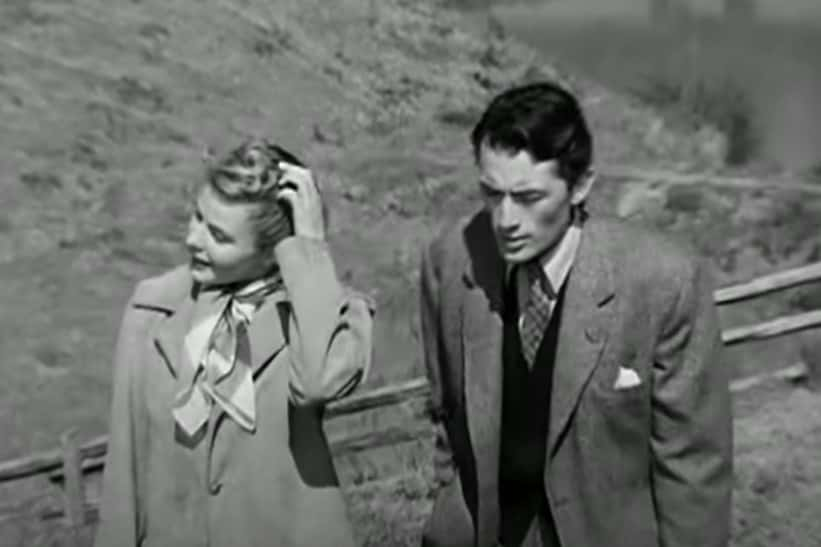 Spellbound(1945), Selznick International Pictures
Spellbound(1945), Selznick International Pictures
29. He Was A Phenomenon
Selznick, on subsequent screenings of Spellbound, noticed something even more baffling. The female viewers began their libidinous chatter not when they first saw him on the screen—it was even earlier than that. Women started reacting to Peck simply by seeing his name in the opening credits. Spellbound may have received six Academy Award nominations, but this phenomenon was off the charts.
When Peck became aware of his effect on women, he did what any man would do: He used this newfound power to make money.
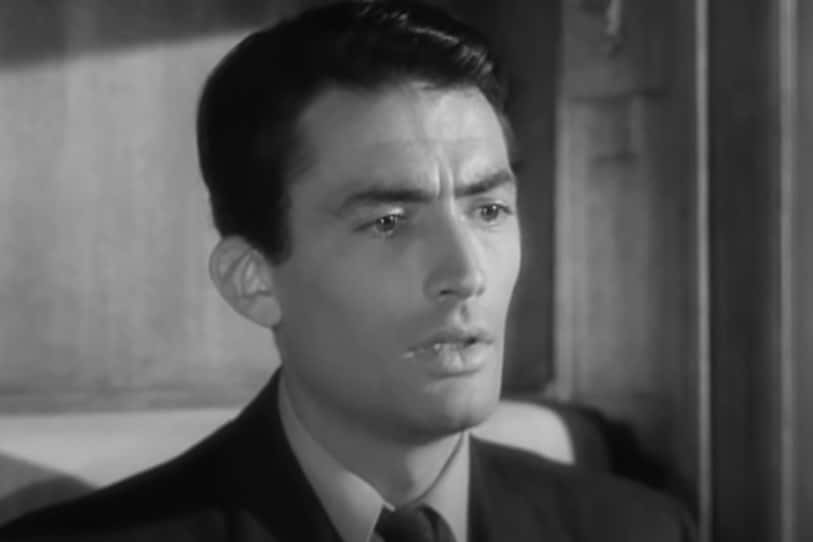 Spellbound(1945), Selznick International Pictures
Spellbound(1945), Selznick International Pictures
30. He Went Lusty
In the following years, Peck followed the family drama, The Yearling, with something a little more scandalous. 1946’s western Duel in the Sun quickly earned a naughty nickname: "Lust in the Dust." It got the name for a very good reason—it was completely amoral. While critics labeled it scandalous, some cities were a little more put out and outrightly banned it.
It was this kind of negative publicity that could destroy an actor’s reputation. But what Peck did next had the potential to seal the coffin on his career forever.
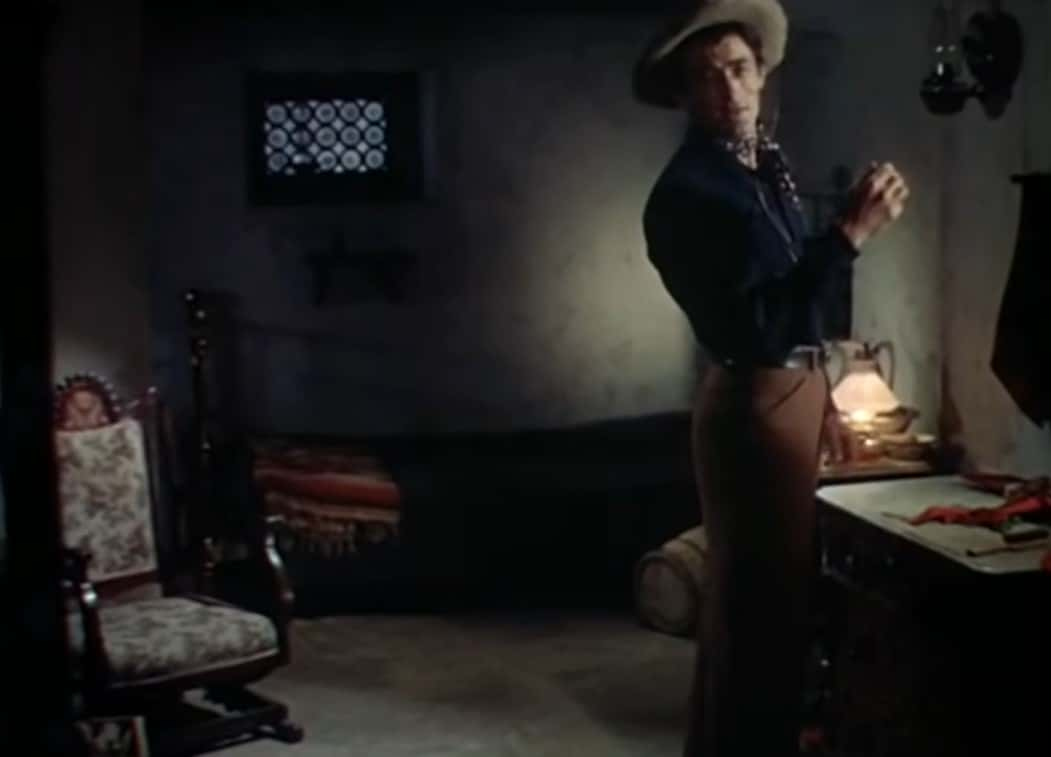 Duel in the Sun (1946), Selznick International Pictures
Duel in the Sun (1946), Selznick International Pictures
31. He Opposed The Hunt
Just after WWII, some Americans feared that there was a communist presence in Hollywood. To combat this, they set up the House Committee on Un-American Activities. It became something of a witch hunt with many Hollywood stars running into trouble. Peck was a brave man and believed that the committee itself was un-American. He risked his career by signing a controversial letter condemning their actions.
Now that Peck had taken on the witch hunt, he was ready for his next controversial cause.
32. He Took On An Issue
After Duel in the Sun, Peck clearly wanted to make sure that the public saw him as more than a beefcake star. To make this happen, he took the serious actor route in Gentleman’s Agreement. This 1947 drama saw Peck’s character pretending to be Jewish in order to experience bigotry first hand. This one got eight nominations, including one for Peck as best actor.
Still, Peck's outspoken opinions didn't stop him from taking on roles that flew straight in the face of his righteous causes.
33. He Met A Lifelong Friend
After signing the declaration against the communist witch hunt, Peck did the last thing he should’ve done: He played a Russian. It was 1949’s gambling film, The Great Sinner with Ava Gardner—and it sparked the beginning of a beautiful friendship. Peck and Gardner famously hit it off and remained close throughout their lifetimes. Later, he even called her his favorite co-star.
However, when Gardner passed in 1990, Peck did something downright baffling.
34. He Kept Bizarre Momentos
Peck and Gardner remained friends for over forty years. When Gardner passed of pneumonia at the age of 67, it devastated Peck. I guess the mourning actor wanted something to remember Gardner by, but his choice was rather unorthodox: He took her dog and, stranger still, her housekeeper. Wasn’t there a piece of jewelry available?
35. He Took A Back Seat
Peck eventually found his way to a comedy, but it didn’t come easily. The film was 1953’s Roman Holiday and there was a lot riding on it—not for the male lead, but for the female. It was Audrey Hepburn’s first major role and it was going to be the film that made her famous. Cary Grant had turned down the male lead, because it was so obviously a supporting role to Hepburn’s.
Peck didn’t have such qualms about supporting Hepburn, but he certainly had something to say about his talented leading lady.
36. He Lifted Her Up
It was clear to everyone, including Peck, that Hepburn was going to be the star of Roman Holiday, so he did something to make sure everyone else knew it too. He noticed that on the posters his name was going to appear above the film title while her name was below. Later, Peck confessed that he told his agent, "I'm smart enough to know this girl's going to win the Oscar in her first picture, and I'm going to look like a damned fool if her name is not up there on top with mine."
Mind you, he did make sure her name was below his. He wasn’t a saint after all.
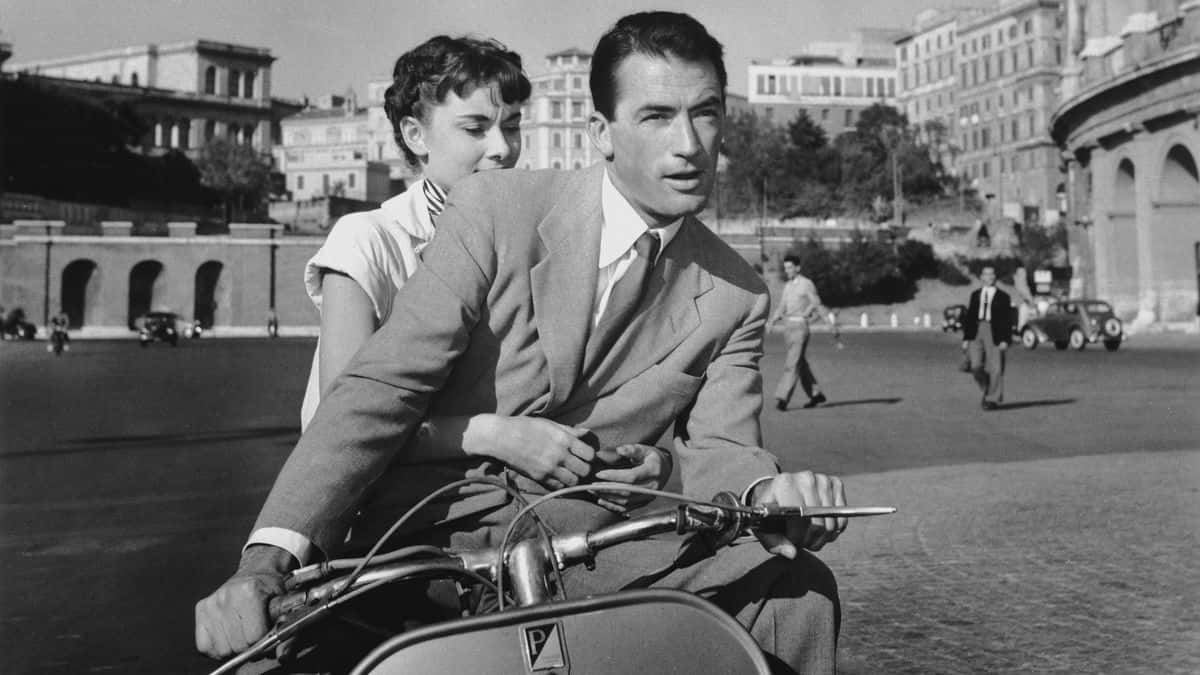 Roman Holiday(1953), Paramount Pictures
Roman Holiday(1953), Paramount Pictures
37. He Took A Holiday
After Roman Holiday, Peck took a holiday of his own. Because the rate of tax in the US had increased—especially for high earners like actors—Peck was looking for a loophole. What he found out was that if he worked for extended periods overseas, he paid less tax. While it wasn’t exactly a vacation—he worked on movies in the UK, Germany, and Sri Lanka—it was a holiday from paying taxes.
Peck was about to get rewarded for working abroad, but not the way he wanted to.
38. He Didn’t Win Or Place
With all his acting overseas, Peck gained an international reputation. In the UK, critics gave awards out for outstanding performances. In 1954, there was a special category for non-British stars and Peck was understandably up for the award. When it came time to announce the winner, however, the result floored Peck: He’d come in a disappointing third.
Third place didn’t sit well with Peck—but, in the end, his work abroad landed him a much better prize. Before long, he placed first in someone’s heart.
39. He Tried Again
Back in 1952, Véronique Passani, a French journalist, interviewed Peck and made quite the impression on him. At the time, Peck was going through a separation from his wife, but a half a year later, when his marriage was decidedly over, Peck asked the journalist to lunch. The man did not waste a single second. The two tied the knot one day after Peck’s divorce from his first wife.
Peck brought Passani back to the States, and they stayed together for the rest of his life.
40. He Took It Personally
Once he’d returned to America, Peck starred in 1956’s The Man in the Gray Flannel Suit. He was back with his Duel in the Sun co-star, Jennifer Jones. But Jones seemed to carry a definite grudge. In fact, during the scenes where their two characters argued, Jones kept clawing at his face. Peck reportedly complained to the director: “I don’t call that acting, I call it personal.”
But Jones’ clawing would be nothing compared to the dangers lurking in his next film.
41. His Life Was In Peril
If Peck was looking for a big film to sink his teeth into, he definitely found it in 1956’s Moby Dick. Director John Huston had to convince Peck he was right for the lead role of Captain Ahab—a man obsessed with taking revenge on a whale. The shoot was actually quite dangerous and, during the filming, Peck almost drowned twice. And that was even before the critics got to him.
42. He Wasn’t Crazy Enough
Peck had been reluctant to play Captain Ahab, and maybe his instincts were right. As an actor, Peck certainly had a reputation for playing understated characters, characters with morals who were often quite gentlemanly. Audiences knew that Captain Ahab, based on the character in the Herman Melville novel, needed passion, he needed to be a little insane. I mean, what sane man wants to take revenge on a whale?
Sadly, Peck’s performance failed to wow crowds, and the film was a box office flop.
 Moby Dick (1956), Warner Bros.
Moby Dick (1956), Warner Bros.
43. He Went Into Full Hero Mode
The early sixties saw a career reboot for Peck. It started with the highly successful thriller Cape Fear in 1961. He followed this with multi-award-winning To Kill a Mockingbird. Not only did Peck win the best actor Oscar for the film about race relations, but the American Film Institute named his character the greatest film hero of the past 100 years. Let me be clear: He did this without superpowers or even a cape.
But to get to play a hero, Peck had done something disturbingly self-serving.
44. He Demanded More
Before Peck had agreed to play the lead character in To Kill a Mockingbird, he asked for something incredibly selfish. He wanted to steal screen time from the children in the movie. The original novel focused on the children’s story, but Peck thought it should focus somewhere else: on him. Of course, he got what he wanted and, let’s be honest, it’s probably a far better film because of it.
45. He Faced The Worst
Movie lovers generally know Peck as a rarity—a Hollywood star without scandal. In 1975, however, Peck faced one of the worst things a father can face: a child taking their own life. Jonathan Peck was a reporter but he faced his own slew of demons, including a broken relationship and health issues. Sadly, Jonathan took his own life by shooting himself in the head, leaving his family devastated.
Peck refused to do any work for two years after the unspeakable incident.
46. He Took A Stand
Peck was adamantly opposed to the US conflict in Vietnam. This was a time when eligible young men were burning their draft cards in protest of fighting for their country. Peck took a stand and it was a strong one: He called the card burners “heroes” and even “patriots.” There was only one problem—and it was a pretty awkward one. His son Stephen just so happened to be in Vietnam, risking his life for his country.
It's safe to say that there may have been a few awkward Thanksgiving dinners after these conflicting views came out.
47. He Downgraded
And speaking of awkward, Peck had joined Susan Sarandon and Martin Sheen on Handgun Control Inc—which fought against the NRA. Peck, however, seemed to have conveniently forgotten his close friendship with the organization’s nemesis—Charlton Heston, who was running the NRA at the time. Peck sheepishly downgraded his friendship with Heston to “colleague.”
In actuality, however, Peck owed Heston a huge favor.
48. He Had A Premonition
After a series of duds, Peck decided to try out the popular horror genre with 1976’s The Omen. Heston originally had the lead role, but gave it up to Peck for another movie. For some reason Peck agreed to a huge pay cut to make the film about raising Satan’s child. But Peck was no dummy. He also arranged to get 10 percent of the box office.
Maybe he had an omen himself about the film because it grossed over 60 million dollars in the US alone. I’ll let you do the math.
 The Omen(1976), 20th Century Fox
The Omen(1976), 20th Century Fox
49. He Kept A Scandalous Secret
Now, although Peck's reputation had remained rather squeaky clean throughout his career, he wasn't always so upstanding. You see, the actor had been keeping a very scandalous secret. Back in 1945, he'd embarked on a forbidden affair. Even more surprising? He'd been a married man. Perfect Gregory Peck had kept his infidelity hidden for years—but in the end, the truth came spilling out.
50. He Really Loved Her
On the set of 1945's Spellbound, Gregory Peck fell head over heels for Ingrid Bergman. He didn't tell anybody about the affair until five years after she'd passed. In an interview, he confessed, "All I can say is that I had a real love for her (Bergman), and I think that's where I ought to stop...I was young. She was young. We were involved for weeks in close and intense work."
51. They Needed A Password
On June 12, 2003, Gregory Peck passed in his home with his wife by his side, and his loss devastated everyone. Almost 3000 people attended his public service. With so many mourners vying to pay their respects, ushers at the service required a special password for friends and family. The password was “Atticus”—the character from To Kill a Mockingbird; it was undoubtedly his favorite role.


